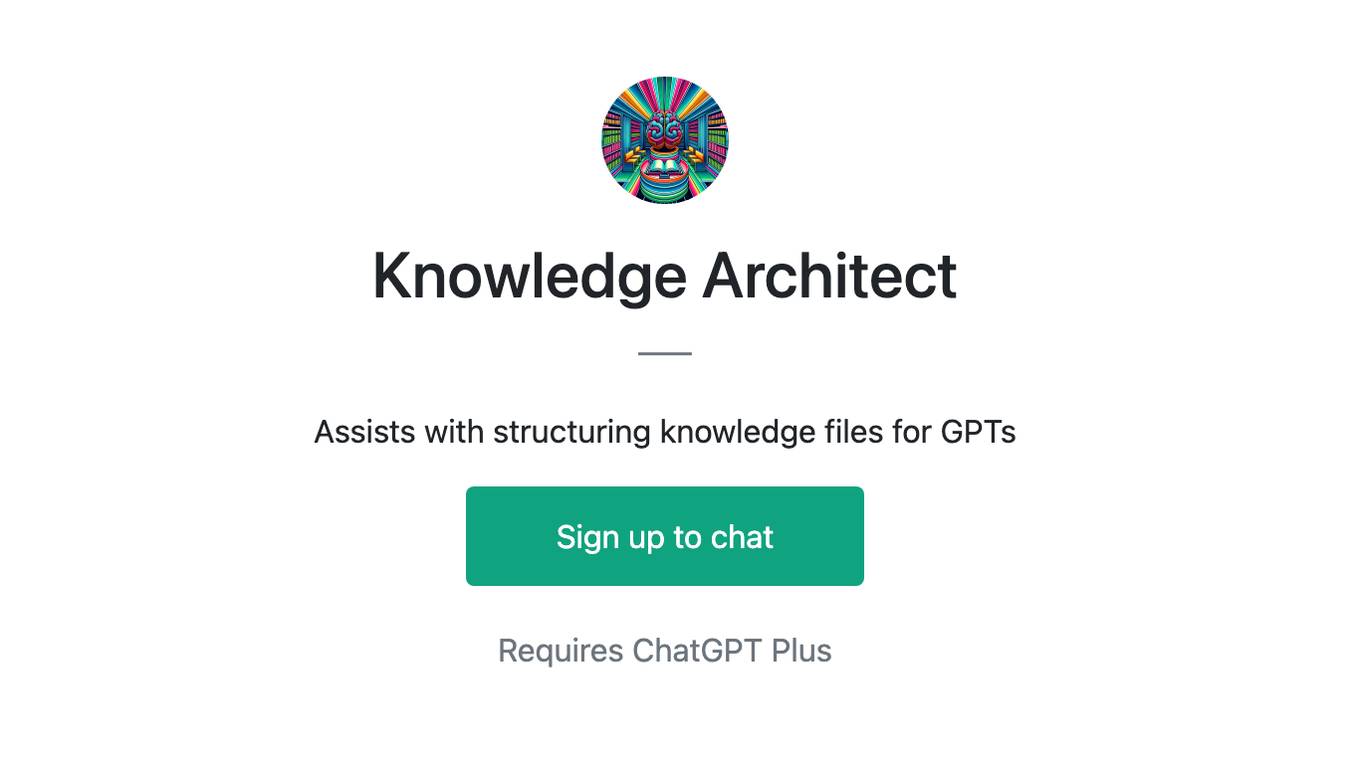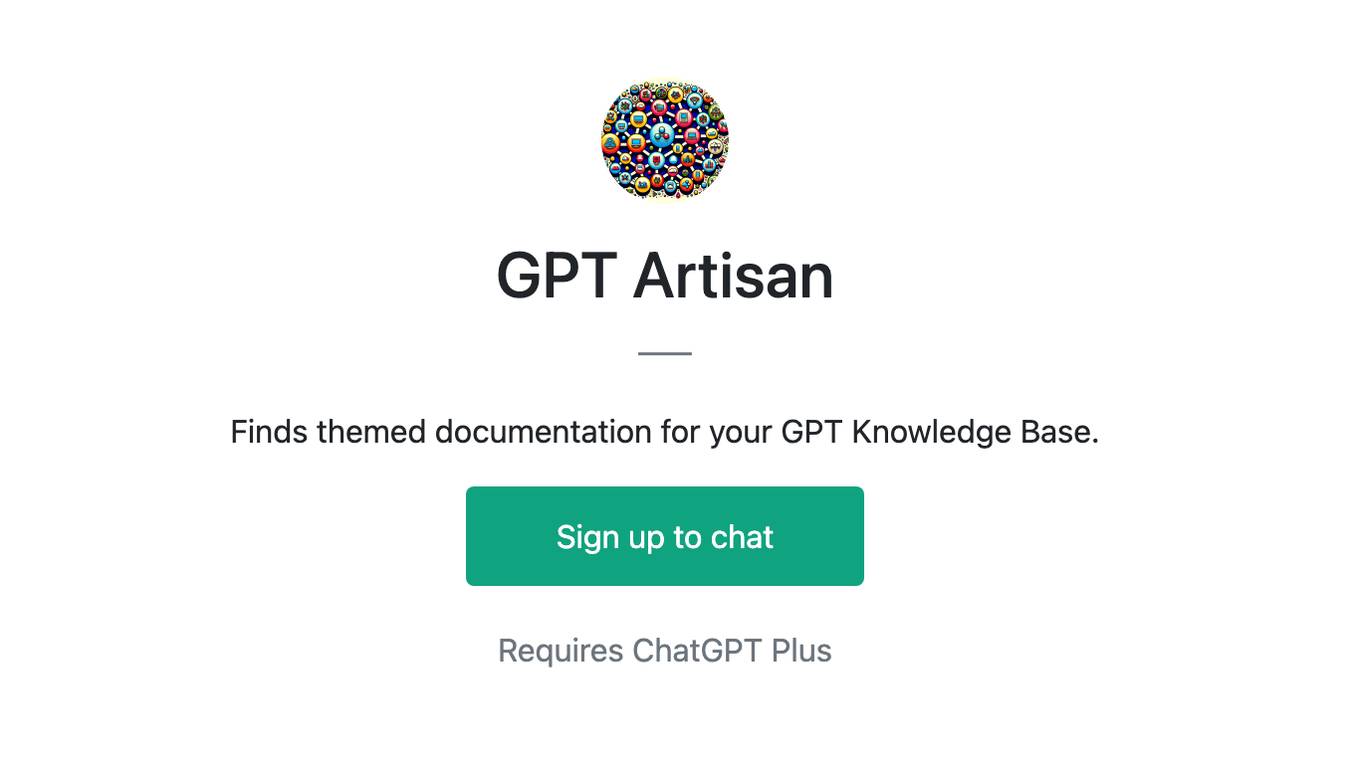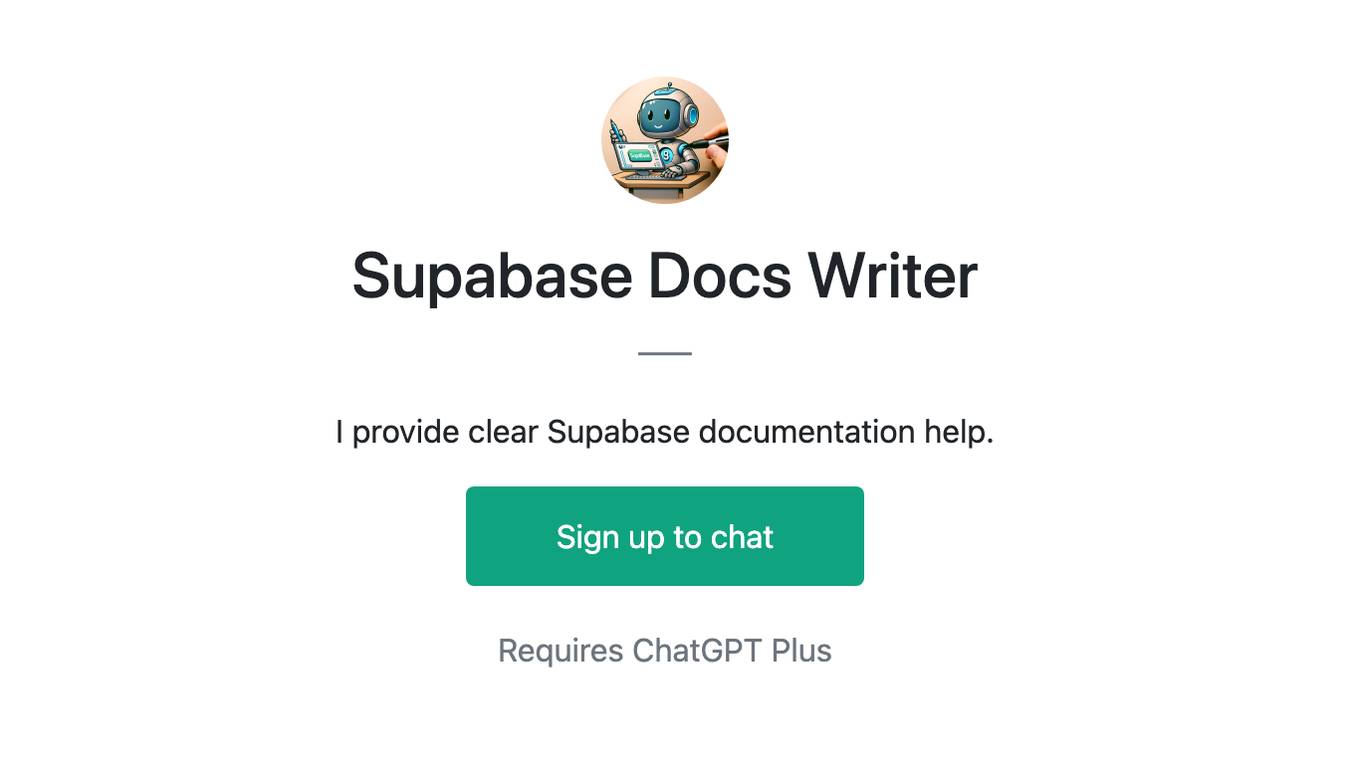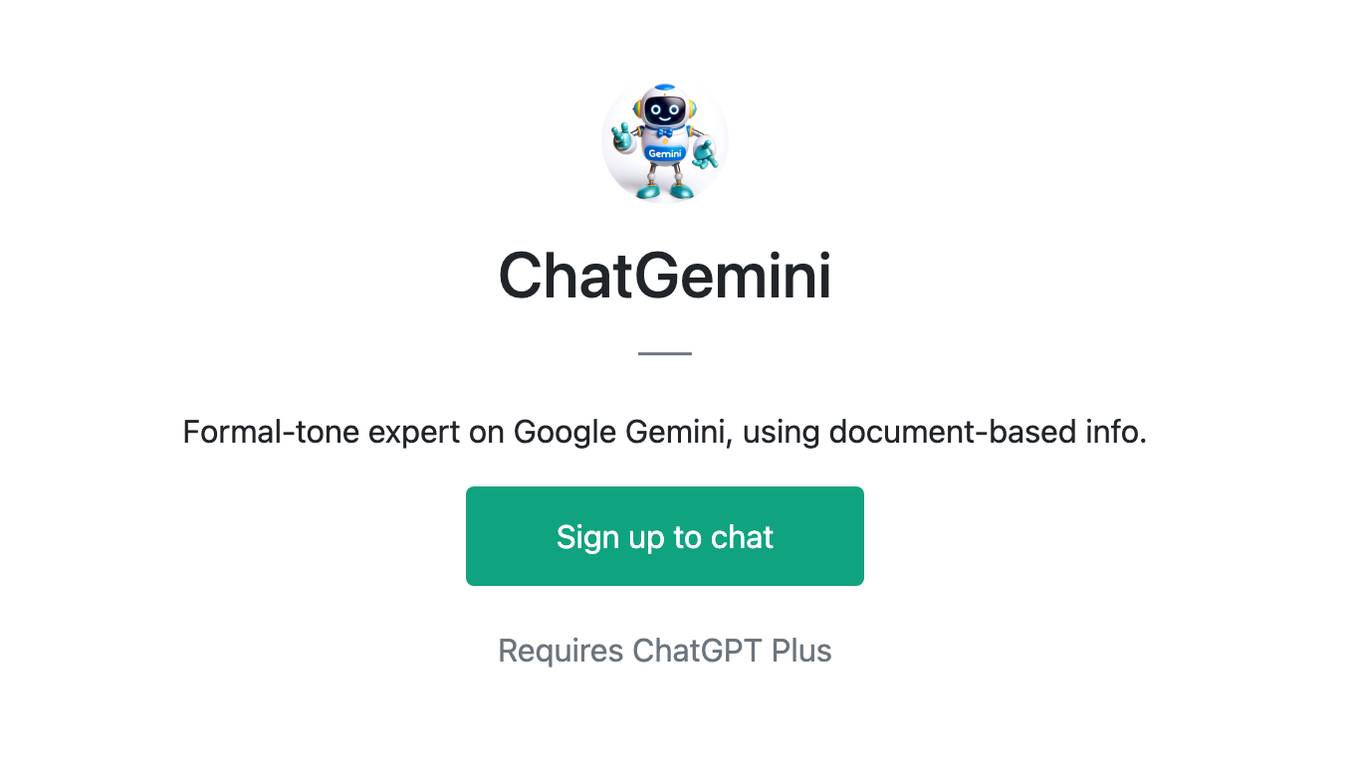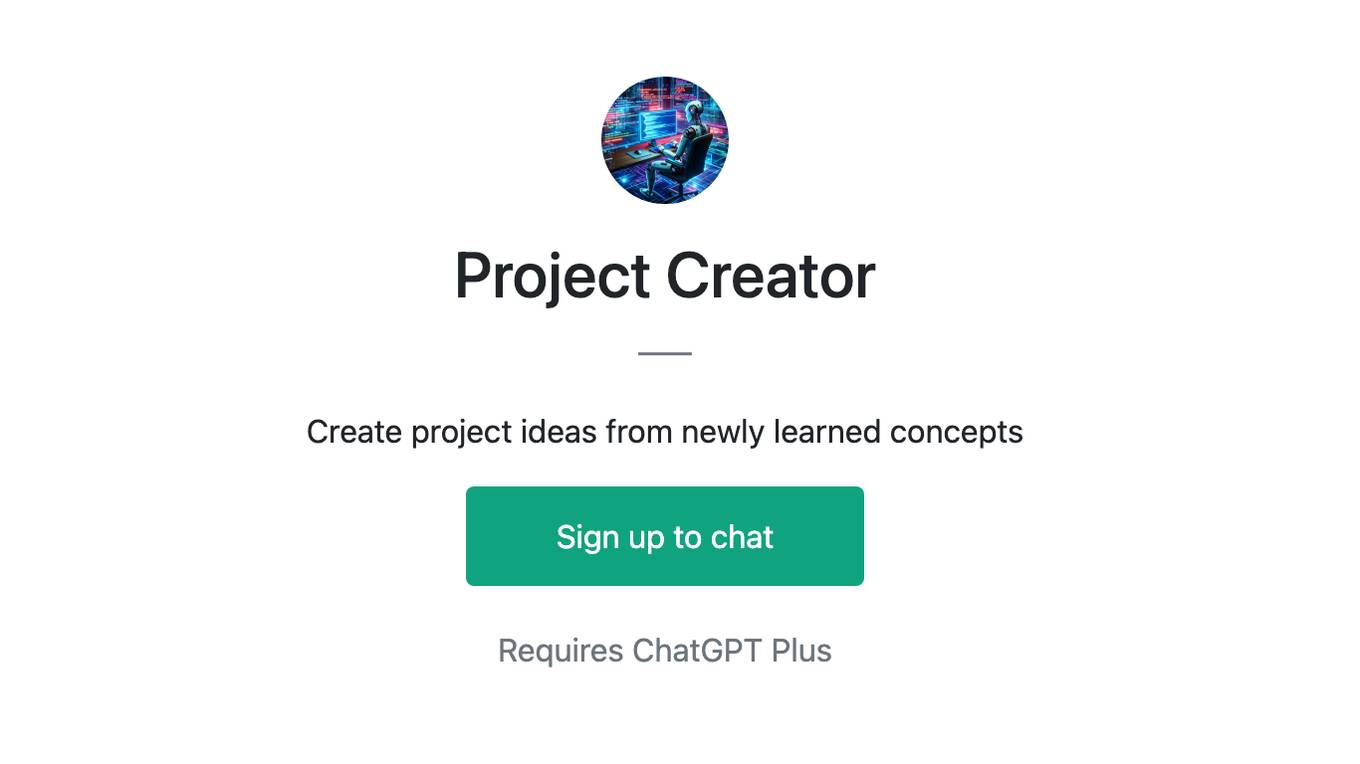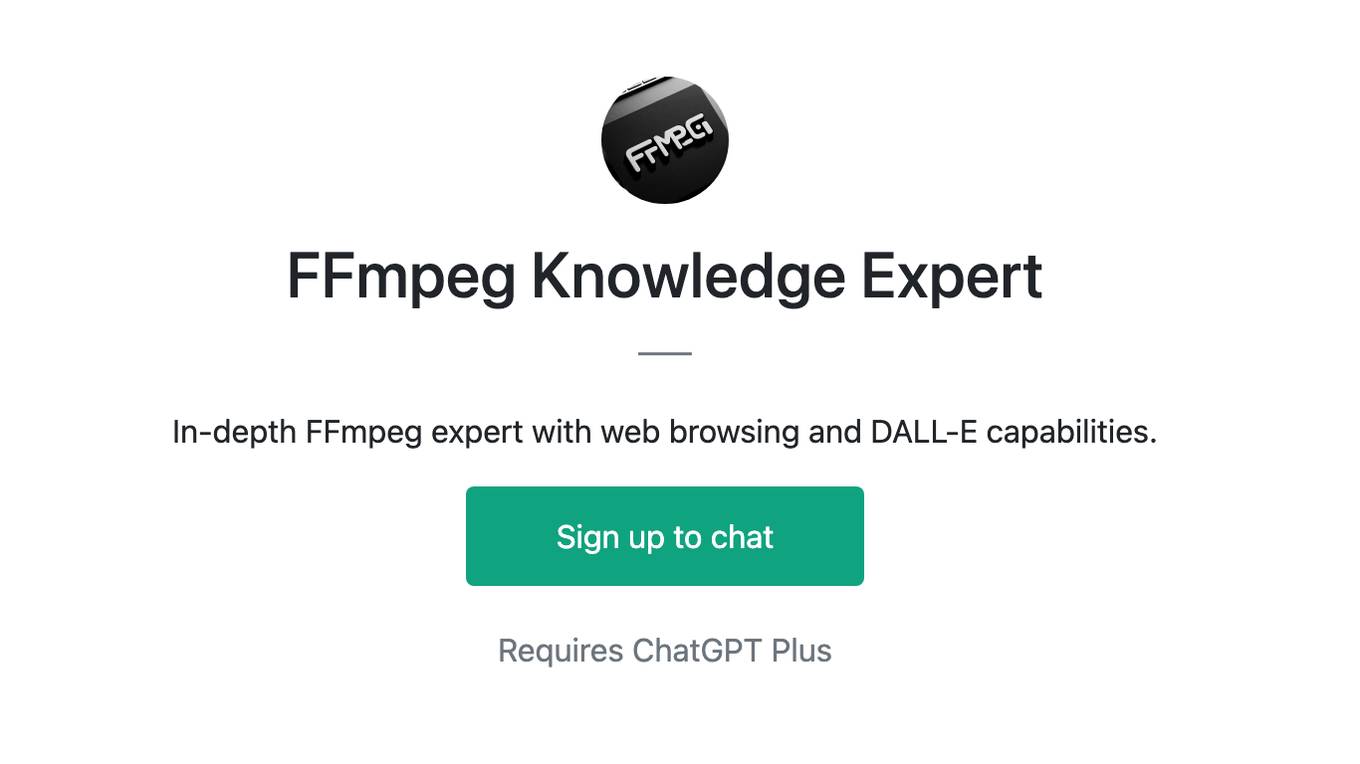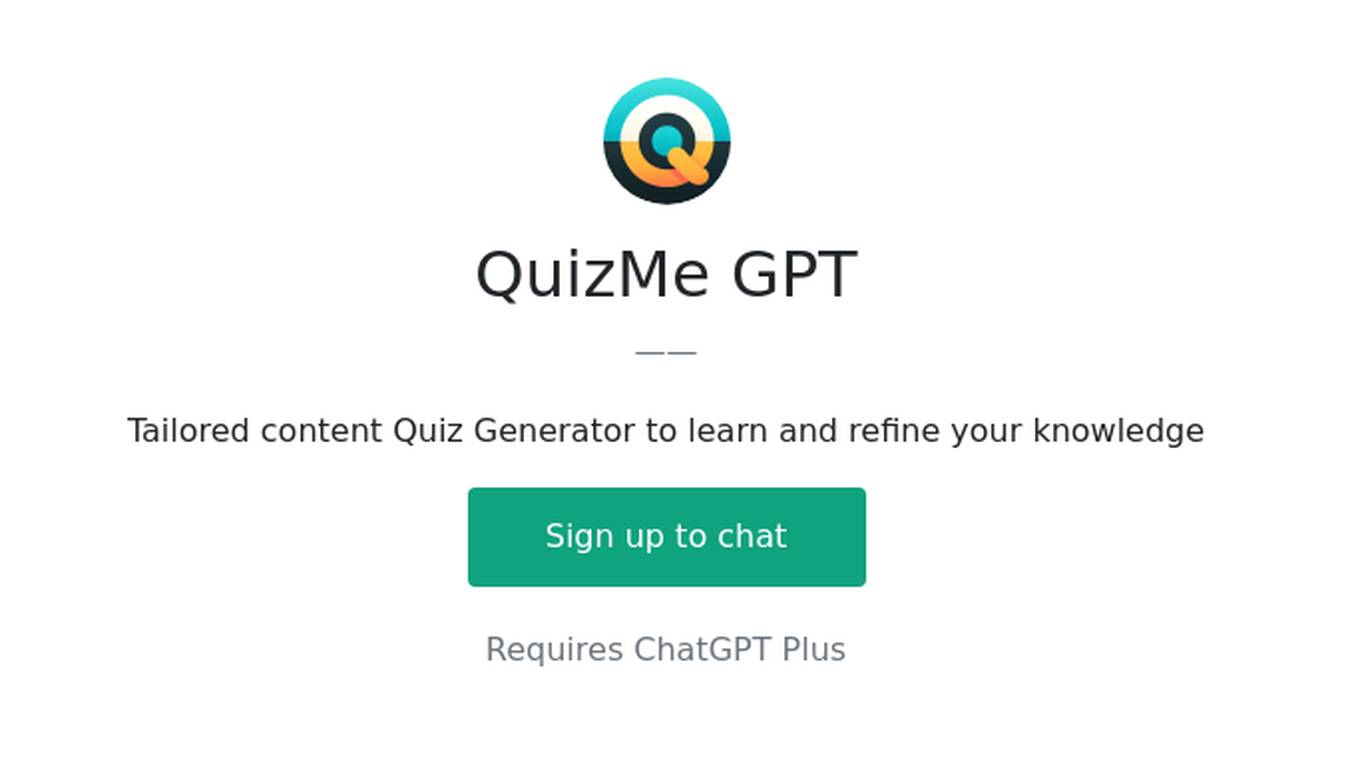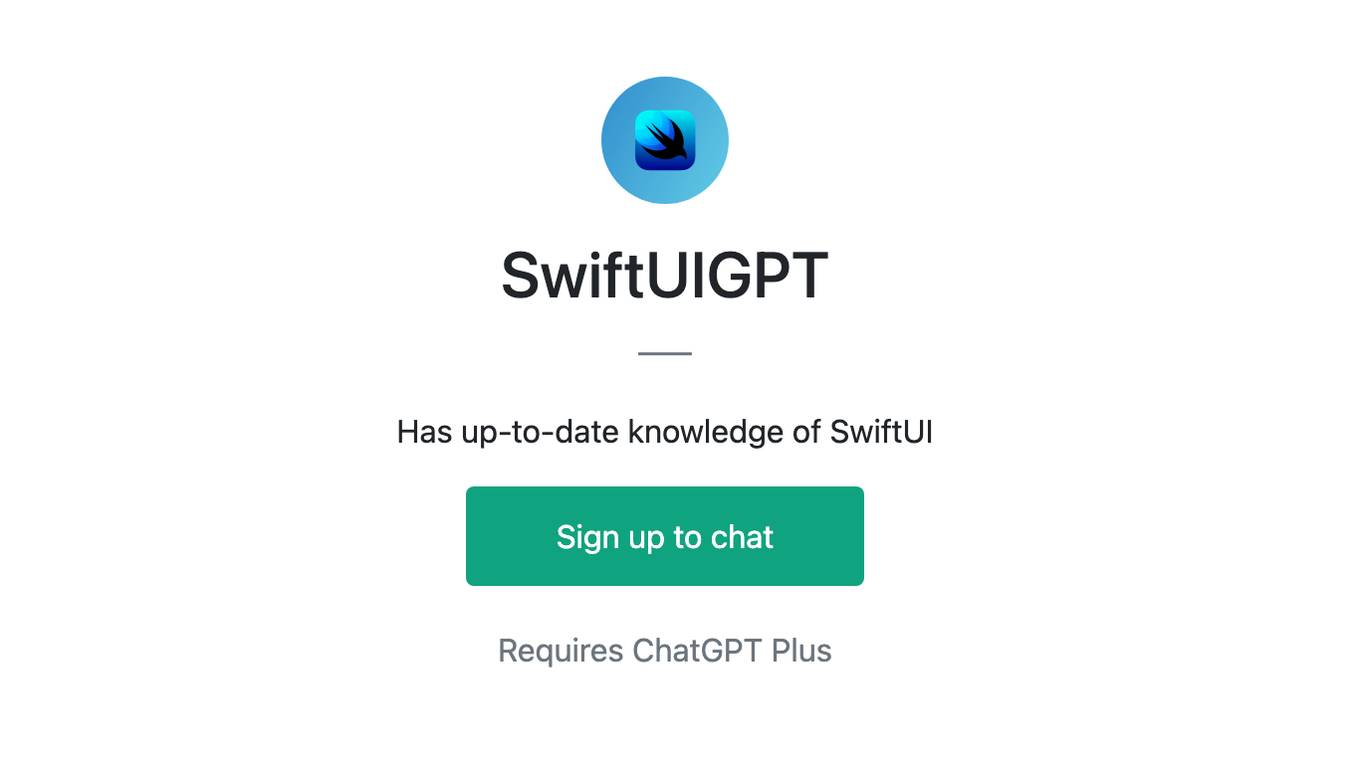Best AI tools for< Create Knowledge Hub >
20 - AI tool Sites
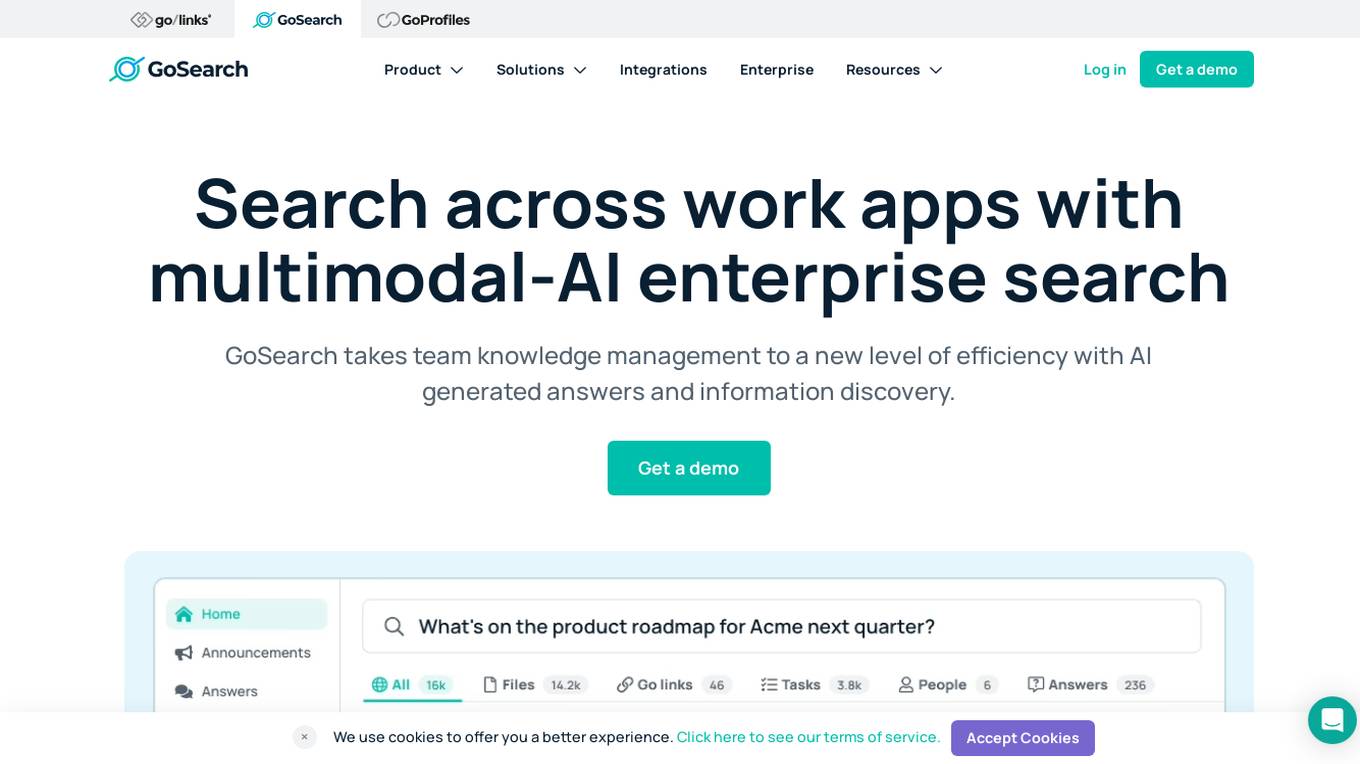
GoSearch
GoSearch is an AI Enterprise Search and AI Agents platform designed to enhance team knowledge management efficiency by providing AI-generated answers and information discovery. It offers features such as unified knowledge hub, multimodal AI, AI agents, no-code AI agent builder, and enterprise data protection. GoSearch helps users search all internal apps and resources in seconds with AI, chat with a personal assistant for instant answers, and create a company knowledge hub for easy information access.
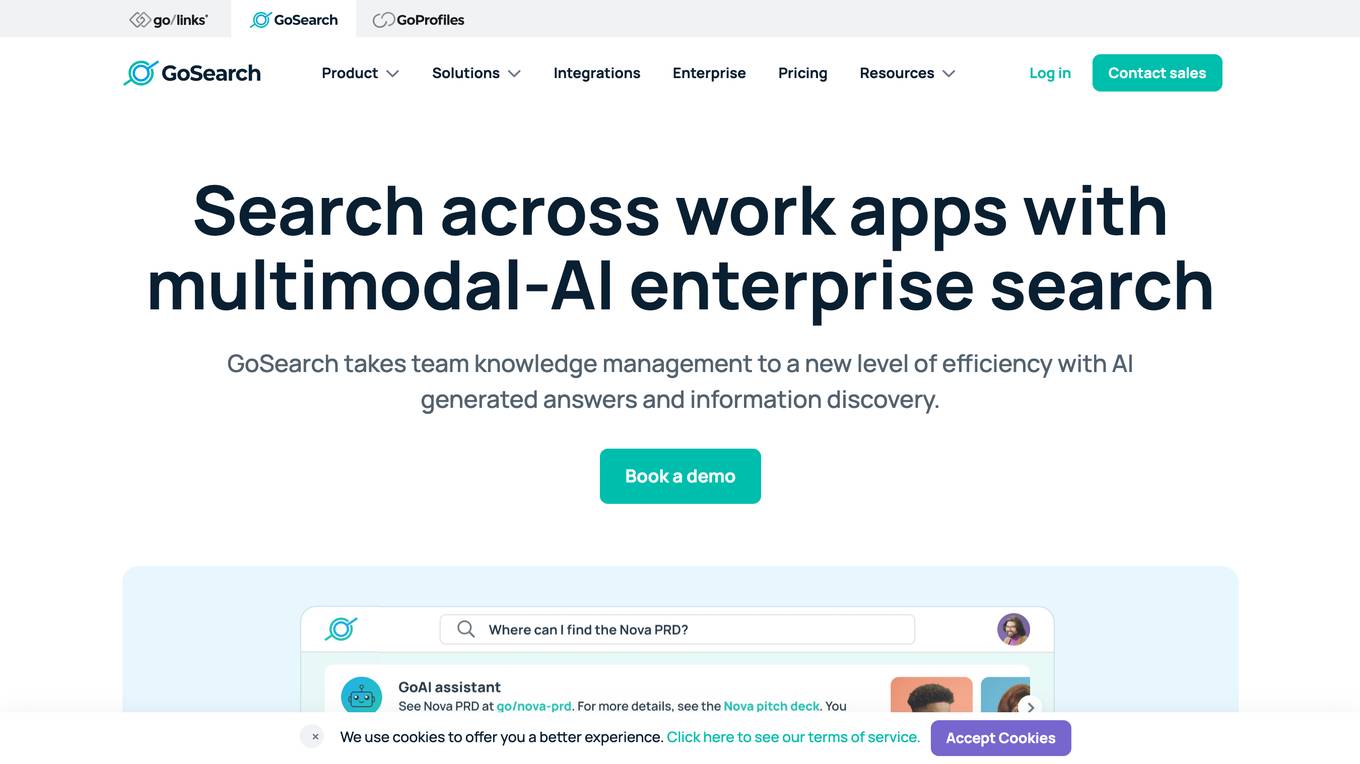
GoSearch
GoSearch is an AI-powered Enterprise Search and Resource Discovery platform that enables users to search all internal apps and resources in seconds with the help of AI technology. It offers features like AI workplace assistant, unified knowledge hub, multimodal AI, custom GPTs, and a no-code AI chatbot builder. GoSearch aims to streamline knowledge management and boost productivity by providing instant answers and information discovery through advanced search innovations.
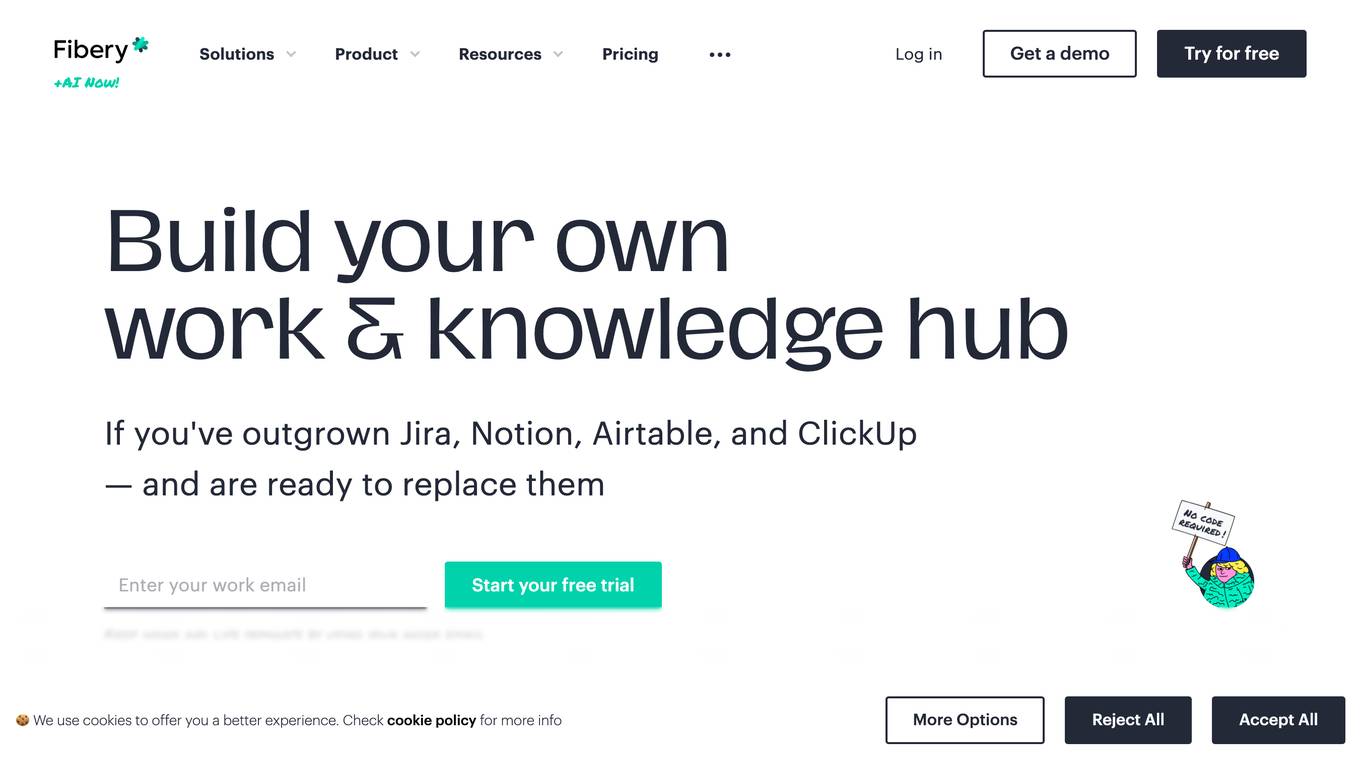
Fibery
Fibery is a no-code work and knowledge management hub that connects structured data (e.g. tables, kanban boards) with unstructured data (e.g. documents) to provide a single source of truth for teams. It offers a range of features including custom fields, databases, and relations, as well as powerful reporting and analytics capabilities. Fibery is designed to be flexible and customizable, allowing teams to map their processes and workflows in a way that suits them best.
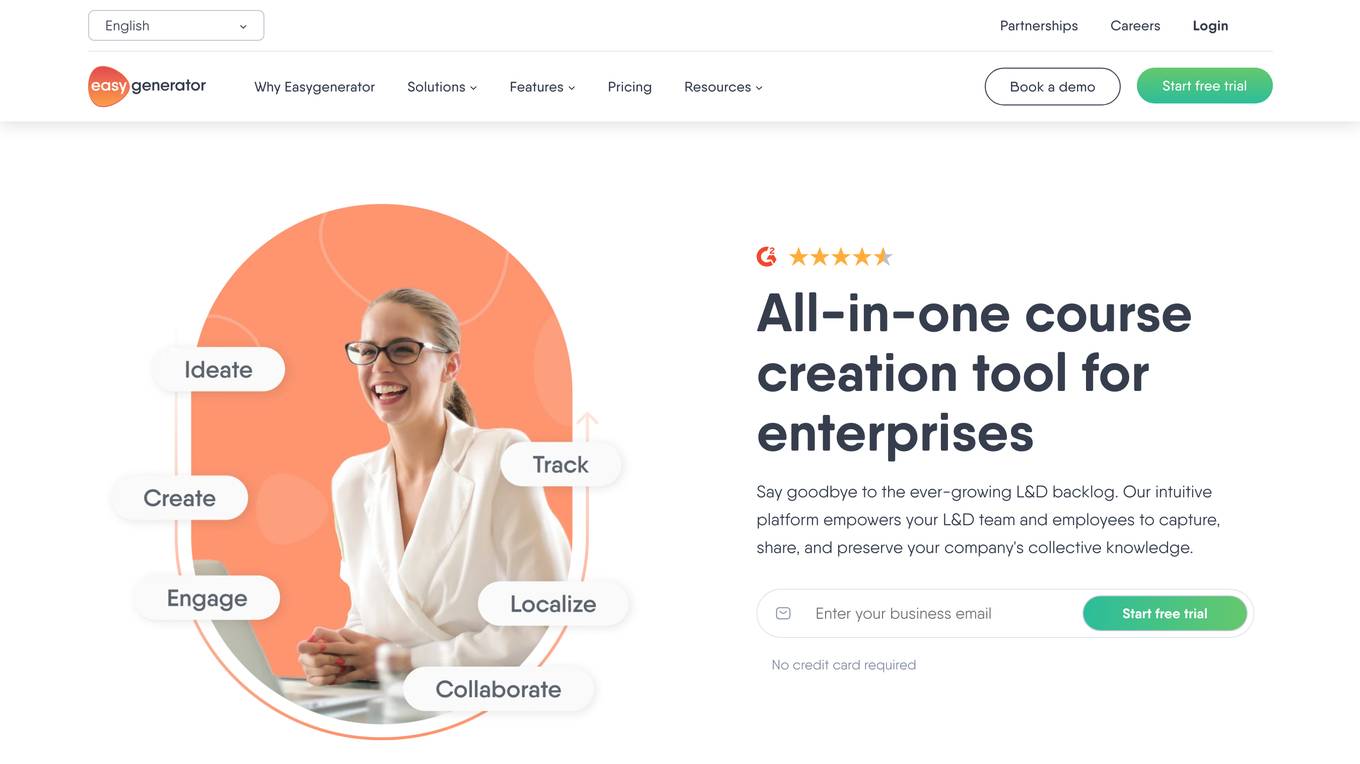
Easygenerator
Easygenerator is a powerful e-learning software that empowers remote teams to create unified and collaborative e-learning environments. With features like EasyAI, auto-translation, text to speech, accessibility, and collaboration, Easygenerator streamlines content creation and addresses diverse learning needs. It allows users to leverage employees' expertise to fulfill training demands efficiently. The platform also offers resources like a knowledge hub, course templates, and customer stories to enhance the e-learning experience.
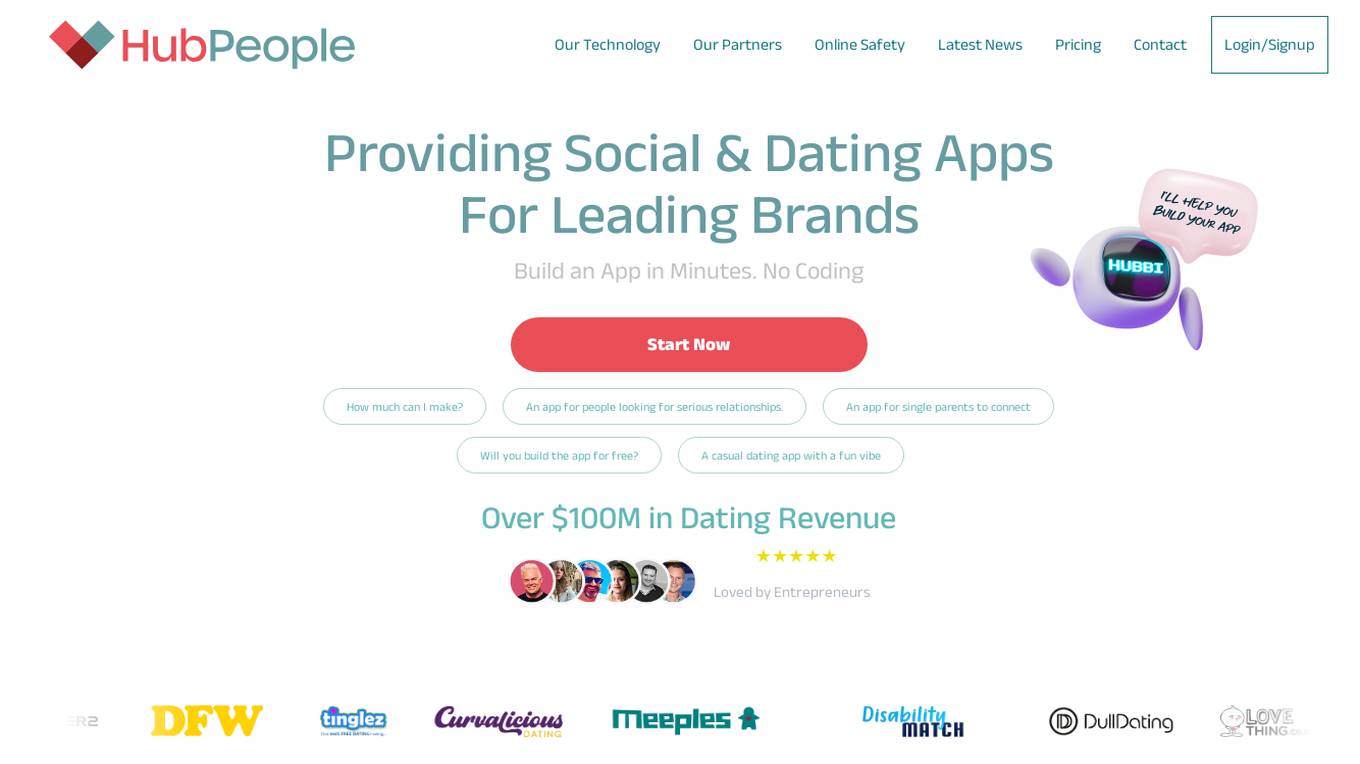
HubPeople AI
HubPeople AI is a platform that provides social and dating apps for leading brands. It allows users to build customized dating apps without any coding knowledge, offering features like instant site structures, acquisition tips, and age verification. The platform is designed to help partners scale faster and smarter, with a focus on safety, trust, and community building. HubPeople AI has been in the industry for 20 years, providing technology for top dating brands and ensuring best practices for users in the online dating space.

Trickle
Trickle is an AI-powered platform that enables users to turn their ideas into live apps and websites quickly and efficiently. With a focus on simplicity and speed, Trickle offers a range of templates and tools to help users bring their visions to life without the need for extensive coding knowledge. Whether you're a beginner looking to create a personal app or an experienced developer working on a community project, Trickle provides the resources and support needed to build innovative digital solutions.
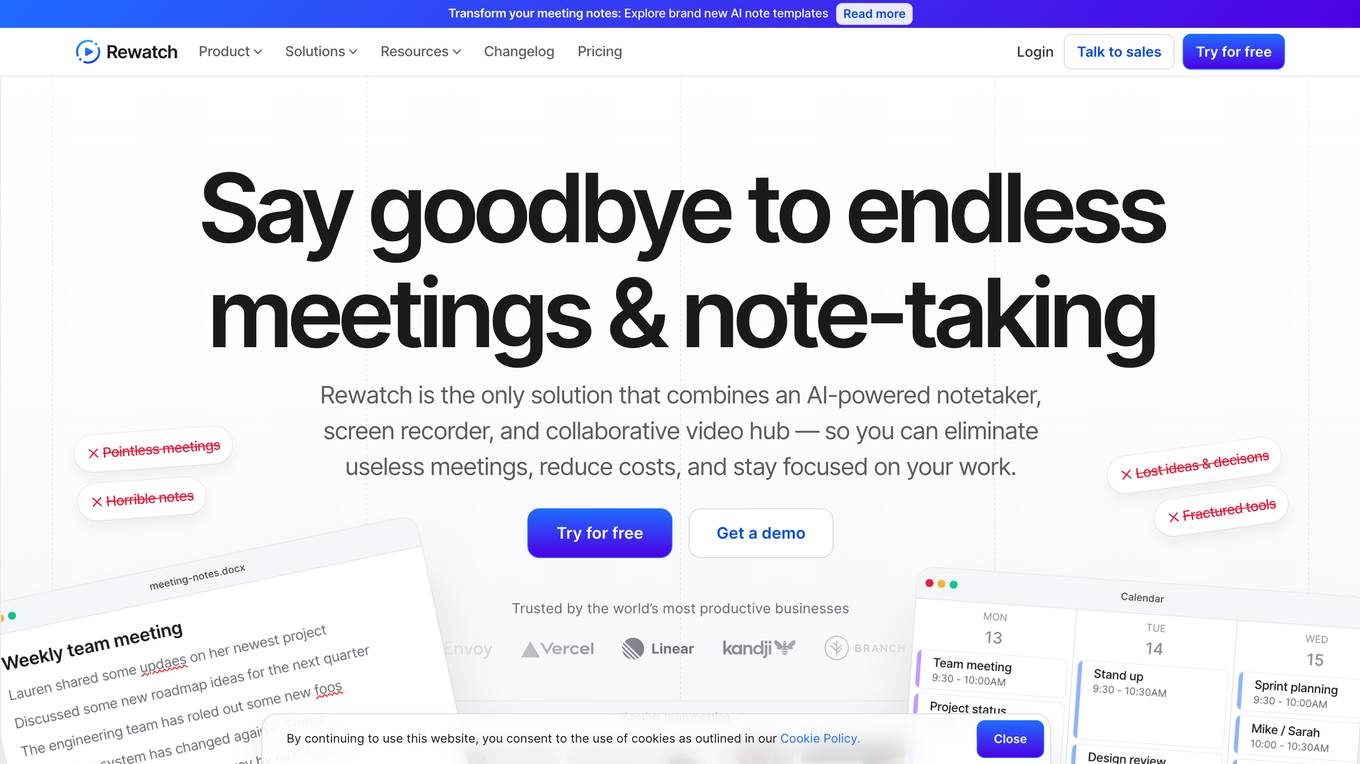
Rewatch
Rewatch is an AI-powered meeting assistant and video hub that helps users capture meetings, create summaries, transcriptions, and action items. It centralizes all meeting videos, notes, and discussions in one place, replacing repetitive in-person meetings with asynchronous collaborative series. Rewatch also offers features like screen recording, integrations with other tools, and conversation intelligence to empower organizations with actionable insights. Trusted by productive businesses, Rewatch aims to optimize necessary meetings, eliminate useless ones, and enhance cross-functional collaboration in a unified hub.
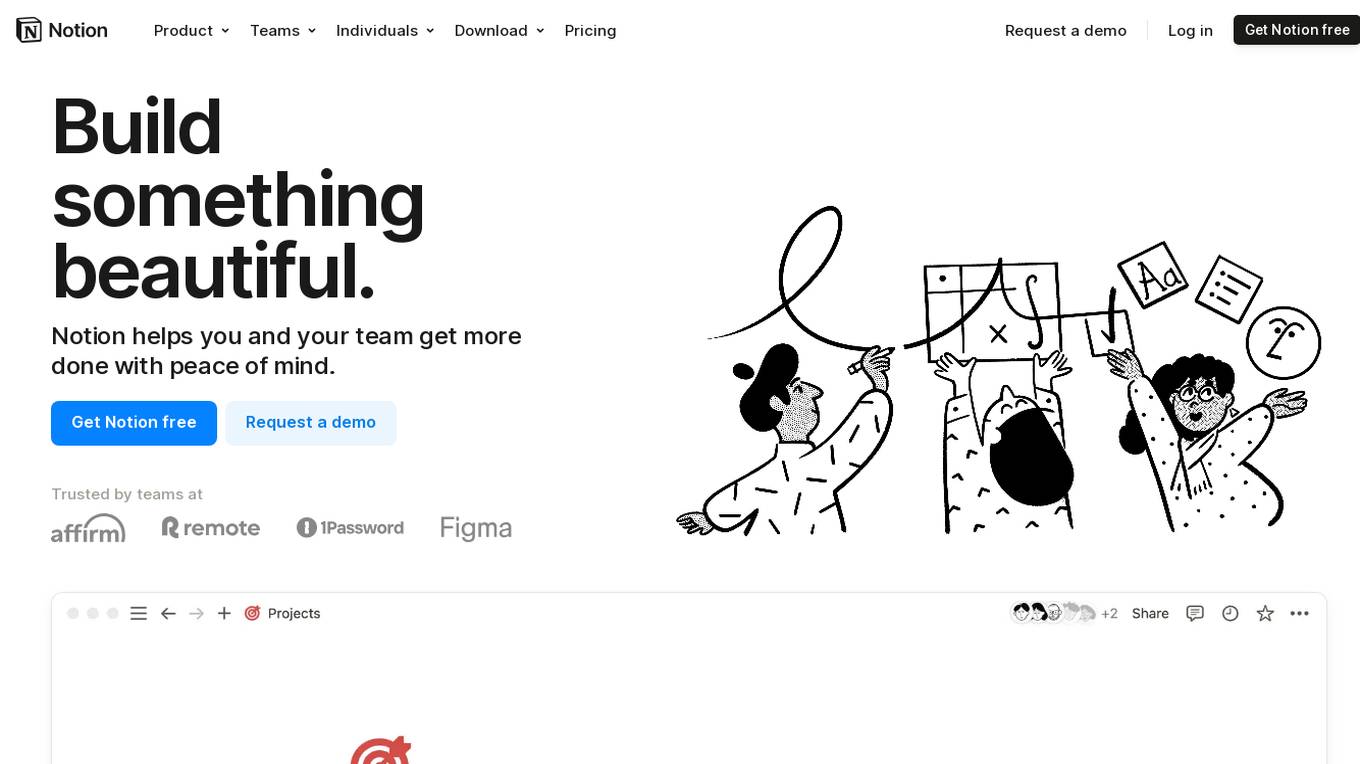
Notion
Notion is an AI-integrated workspace platform that combines wiki, docs, and project management functionalities in one tool. It offers a centralized hub for teams to collaborate, share knowledge, manage projects, and streamline workflows. With AI assistance, users can enhance their productivity by automating tasks, generating content, and finding information quickly. Notion aims to simplify work processes and empower teams to work more efficiently and creatively.
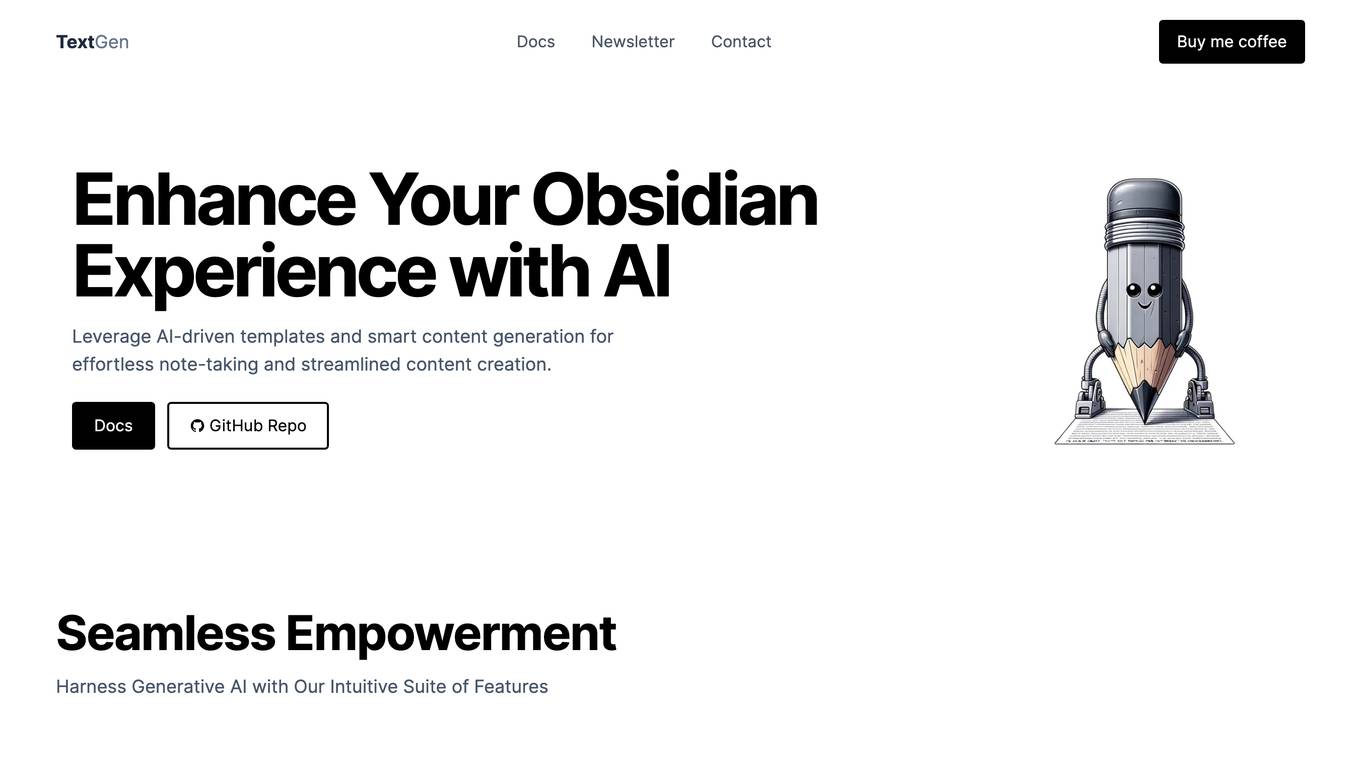
TextGen
TextGen is an AI-powered tool that enhances the Obsidian note-taking experience. It provides users with AI-driven templates and smart content generation capabilities, enabling effortless note-taking and streamlined content creation. TextGen is free and open-source, offering unrestricted access to its plugin and encouraging innovation within the community. The collaborative template hub fosters a shared creative space where users can exchange templates and explore new possibilities for generative AI applications in note-taking. TextGen's smart prompt customization feature allows users to tailor prompts based on template metadata, resulting in text outputs that are finely tuned to their specific context and needs. The extensive language model compatibility ensures flexibility, supporting a wide range of language models, including gpt-4-1106-preview (gpt4 turbo) 128k, gpt-3.5-instruct, claude, bard, and llama. The advanced template engine simplifies and enhances the note-taking routine, boosting productivity and efficiency. Optimized for the Obsidian experience, TextGen integrates seamlessly, augmenting personal knowledge management practices.

Copyright Hub
The website is a platform that provides information about copyright laws and regulations. It offers resources and guidelines for individuals and businesses to understand and protect their intellectual property rights. Users can access information on copyright infringement, fair use, licensing, and other related topics. The platform aims to educate and empower users to navigate the complex landscape of intellectual property law.

Guru
Guru is an AI-powered enterprise search, intranet, and wiki platform that helps companies connect their collective knowledge and streamline information retrieval. It offers comprehensive features such as AI-driven company knowledge search, customizable employee engagement hub, automated centralized knowledge base, and integrations with existing workflows. Guru's zero-data retention policy, private AI models, and role-based access control ensure data security and privacy. The platform caters to various industries and teams, providing tailored solutions for human resources, operations, IT, product engineering, customer support, sales, marketing, and learning & development.
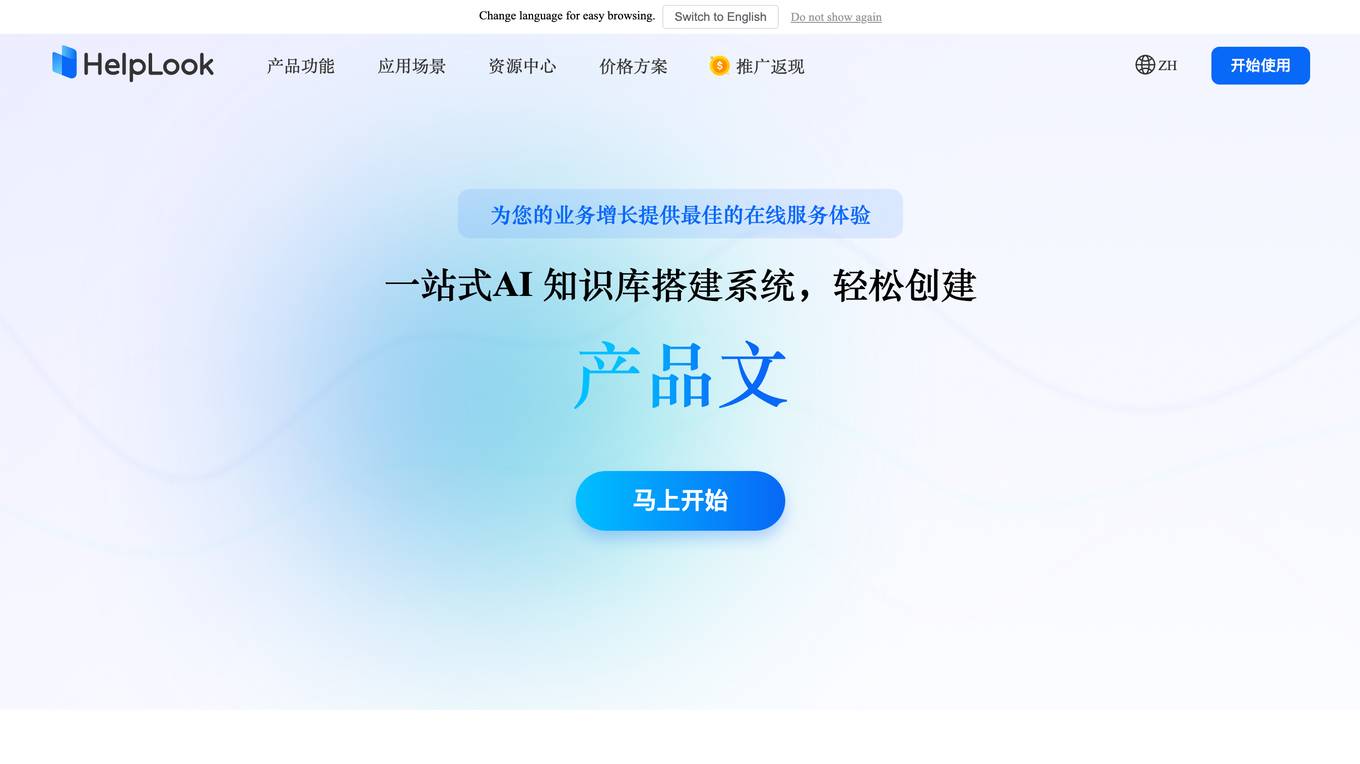
HelpLook
HelpLook is an AI-powered knowledge base platform designed for content creators, company employees, and customer service teams. It offers features such as an intuitive editor, website portal for visitors, customizable widgets, and AI integration for creating AI chatbots and knowledge bases. With HelpLook, users can easily build and manage knowledge repositories, improve customer service efficiency, reduce costs, and enhance user experience through AI-driven solutions.
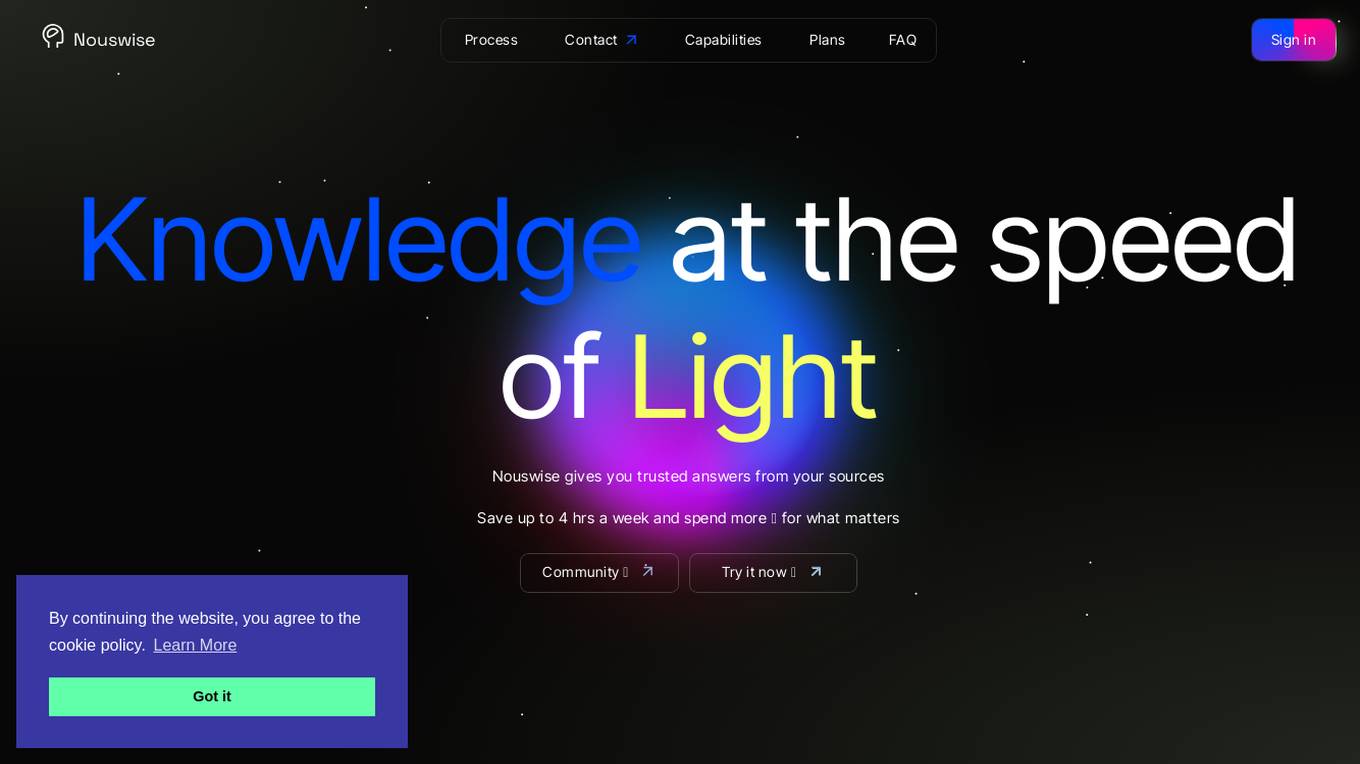
Nouswise
Nouswise is an AI-powered personal search engine that provides trusted answers from your sources, saving you up to 4 hours a week. It allows you to upload and explore books, validate answers, and create a personal knowledge base. The application is grounded in the personal information you trust the most, offering a unique experience with verifiable information and context awareness. Nouswise aims to make everything searchable and ensures privacy and security beyond the limit.

Datagrid
Datagrid is an AI-powered platform that acts as your co-worker, helping you find, enrich, and delegate information. It harnesses the power of AI to enrich datasets, access knowledge, execute tasks, and automate follow-ups. Datagrid AI Agents can free your team from the burden of enriching messy data, allowing them to focus on revenue-generating tasks. The platform offers features like AI enrichment, data processing, long-form content writing, generating insights, and creating a knowledge base.
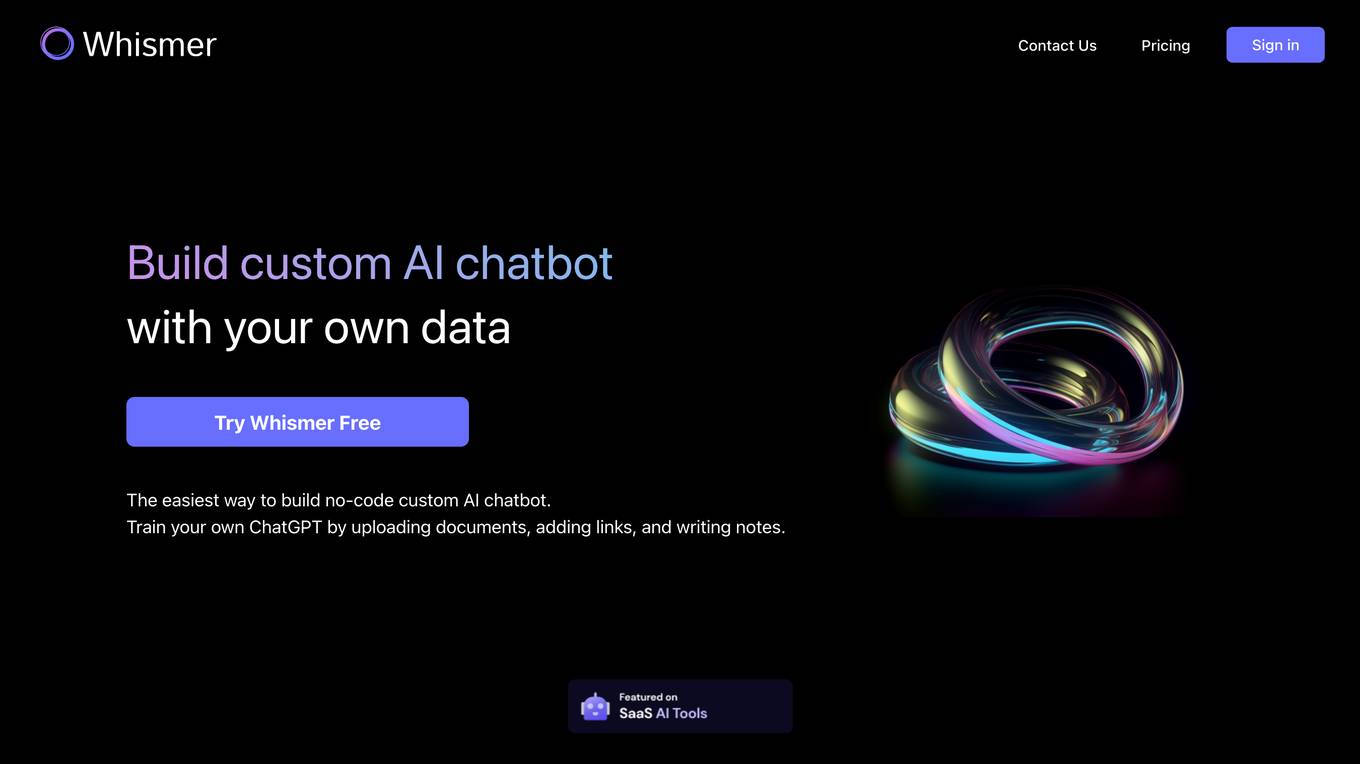
Whismer
Whismer is an AI application that allows users to build custom AI chatbots using their own data. The platform enables users to train their own ChatGPT by uploading documents, adding links, and writing notes. With Whismer, users can customize resources to help the AI system better adapt to specific fields or tasks, improving accuracy and efficiency. The AI proactively learns from user resources to solve various problems. Users can create a professional AI knowledge base in minutes, allowing the AI to learn and provide accurate answers. Whismer also enables users to share their customized AI projects with others, making AI accessible to more people.

Automi
Automi is an AI-powered platform that helps businesses automate their customer service and support operations. It uses natural language processing (NLP) and machine learning (ML) to understand customer queries and provide relevant answers. Automi also offers a range of features to help businesses manage their customer interactions, including a knowledge base, ticketing system, and live chat.
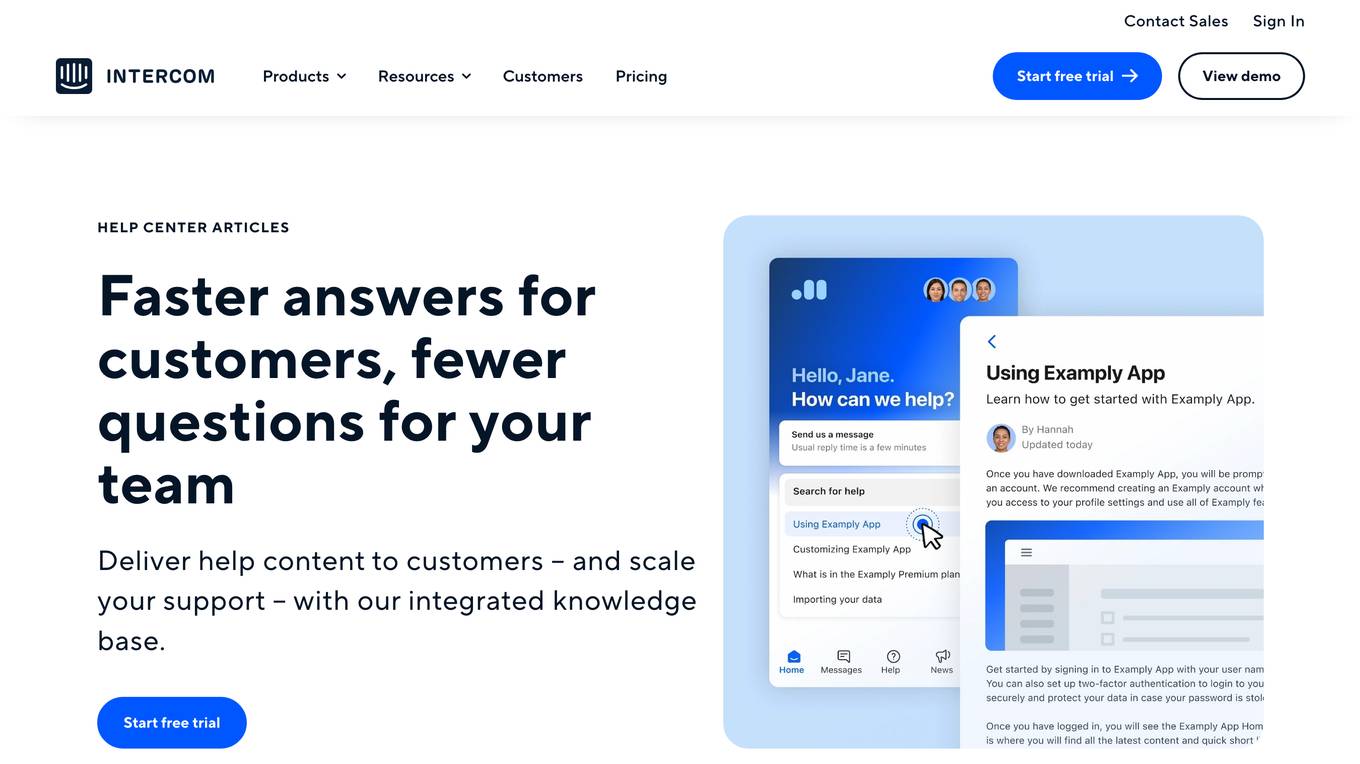
Intercom
Intercom is a customer engagement platform that helps businesses build better relationships with their customers through personalized messaging, automated support, and self-service help. Intercom's knowledge base software is a powerful tool that allows businesses to create and manage a comprehensive knowledge base that can help customers find answers to their questions quickly and easily. With Intercom's knowledge base software, businesses can reduce support volume, increase efficiency, and deliver personalized support at scale.
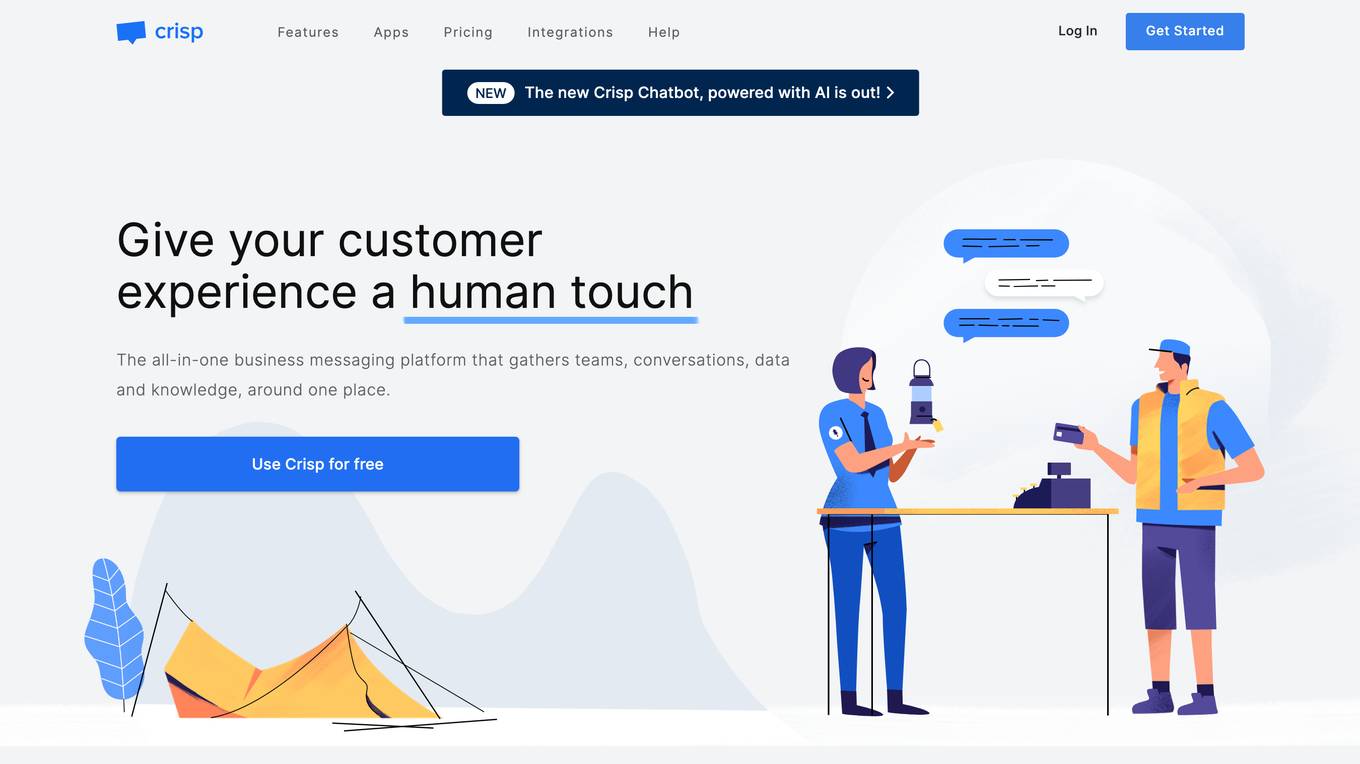
Crisp
Crisp is an AI Customer Support Platform that offers an all-in-one suite for AI-first customer support, including an AI-powered support agent named Hugo. It provides features such as AI Agent Apps, Pricing, Integrations, Help Widget, AI Chatbot, CRM, Shared Inbox, AI Campaigns, Analytics, Knowledge Base, Ticketing system, and more. Crisp aims to automate 50% of inquiries with AI, allowing teams to focus on important tasks. The platform enables users to build AI workflows, centralize inbound communications, create a knowledge base, and monitor team performance through analytics.
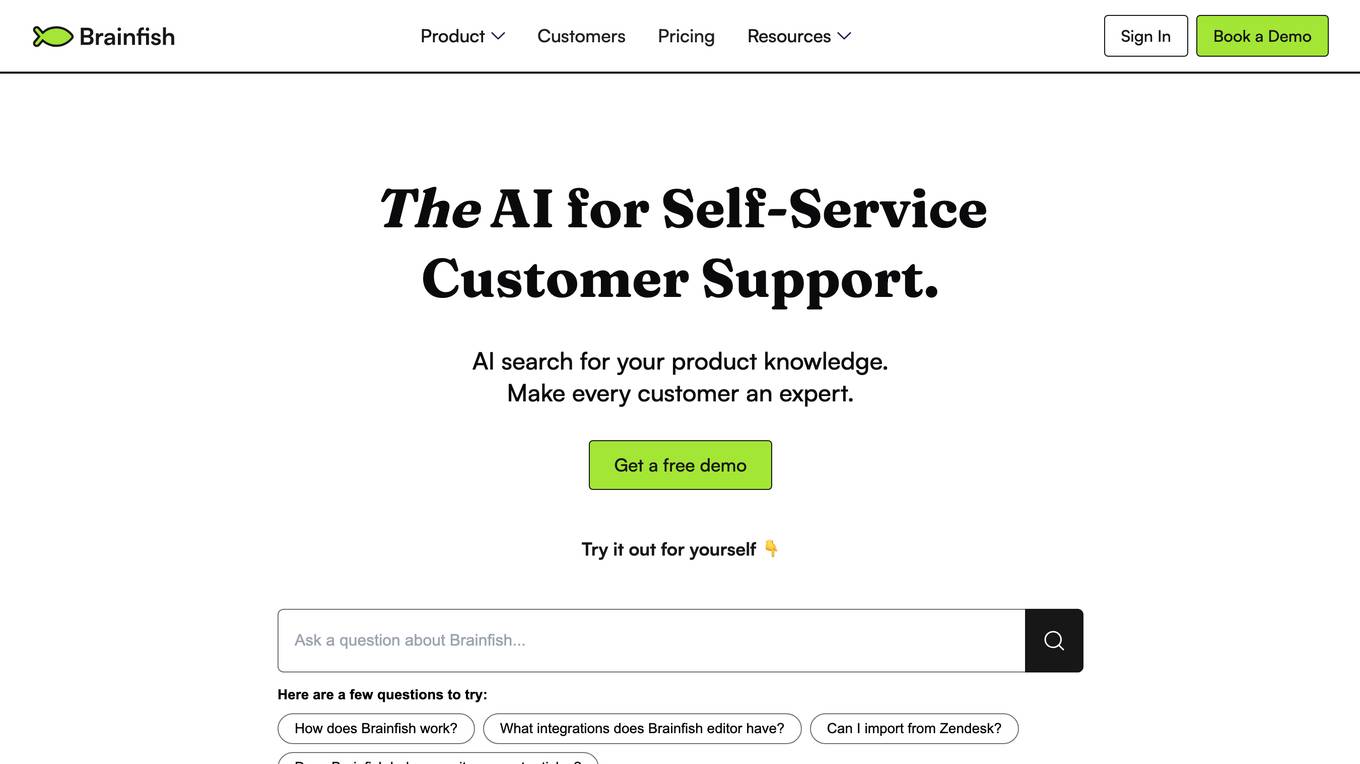
Brainfish
Brainfish is an AI-powered customer support tool that helps businesses provide self-service support to their customers. It uses advanced AI to help customers find answers to their questions quickly and easily, reducing the need for human support. Brainfish also provides businesses with insights into customer concerns, helping them improve their knowledge base content and provide better support.
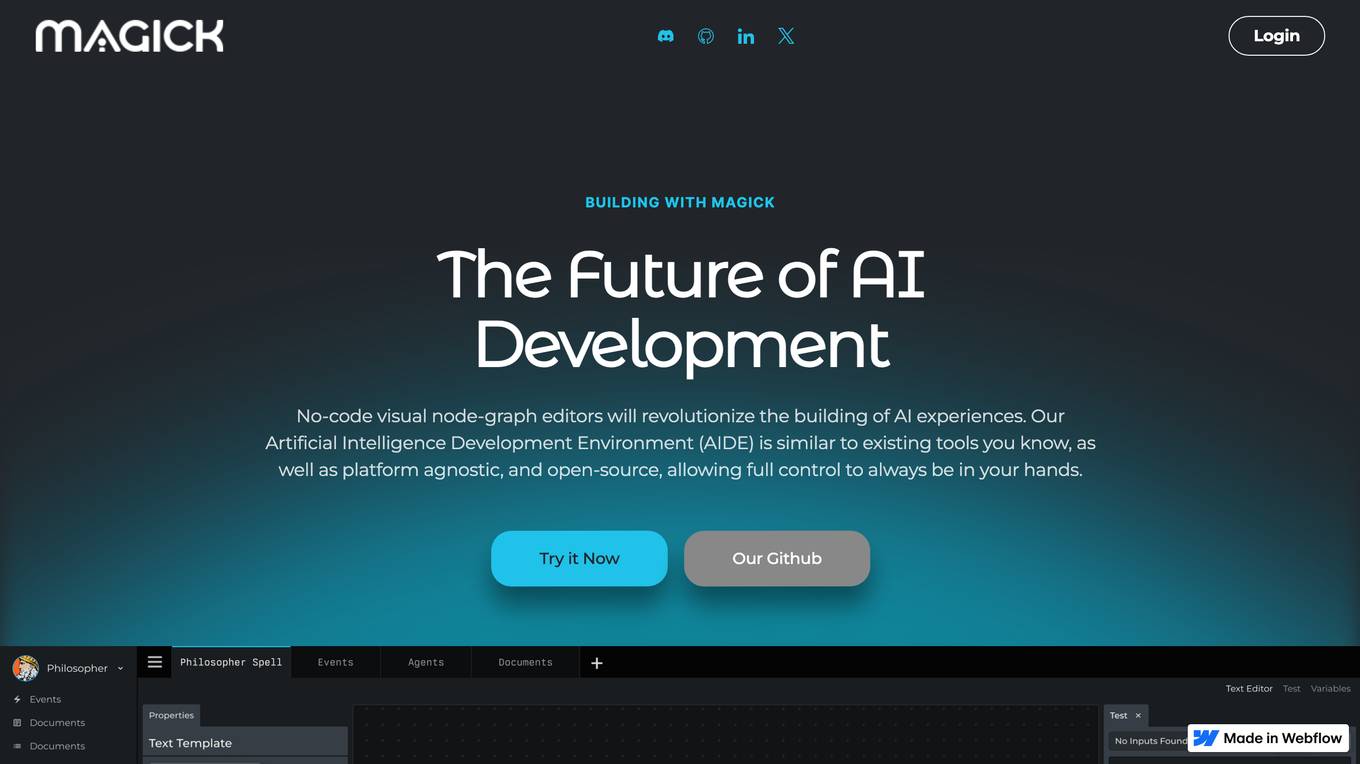
Magick
Magick is a cutting-edge Artificial Intelligence Development Environment (AIDE) that empowers users to rapidly prototype and deploy advanced AI agents and applications without coding. It provides a full-stack solution for building, deploying, maintaining, and scaling AI creations. Magick's open-source, platform-agnostic nature allows for full control and flexibility, making it suitable for users of all skill levels. With its visual node-graph editors, users can code visually and create intuitively. Magick also offers powerful document processing capabilities, enabling effortless embedding and access to complex data. Its real-time and event-driven agents respond to events right in the AIDE, ensuring prompt and efficient handling of tasks. Magick's scalable deployment feature allows agents to handle any number of users, making it suitable for large-scale applications. Additionally, its multi-platform integrations with tools like Discord, Unreal Blueprints, and Google AI provide seamless connectivity and enhanced functionality.
0 - Open Source AI Tools
20 - OpenAI Gpts
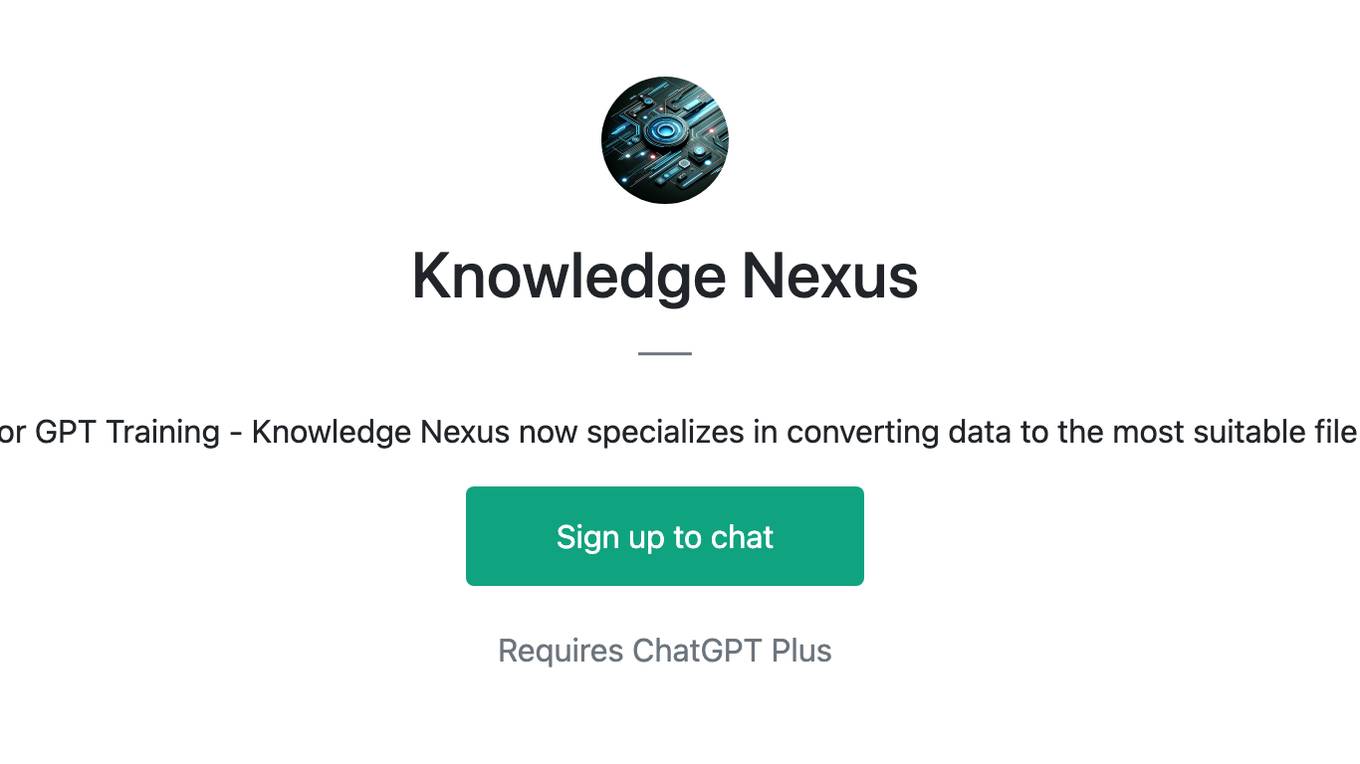
Knowledge Nexus
Expert in data-to-file conversion for GPT Training - Knowledge Nexus now specializes in converting data to the most suitable file format for GPT Knowledge files
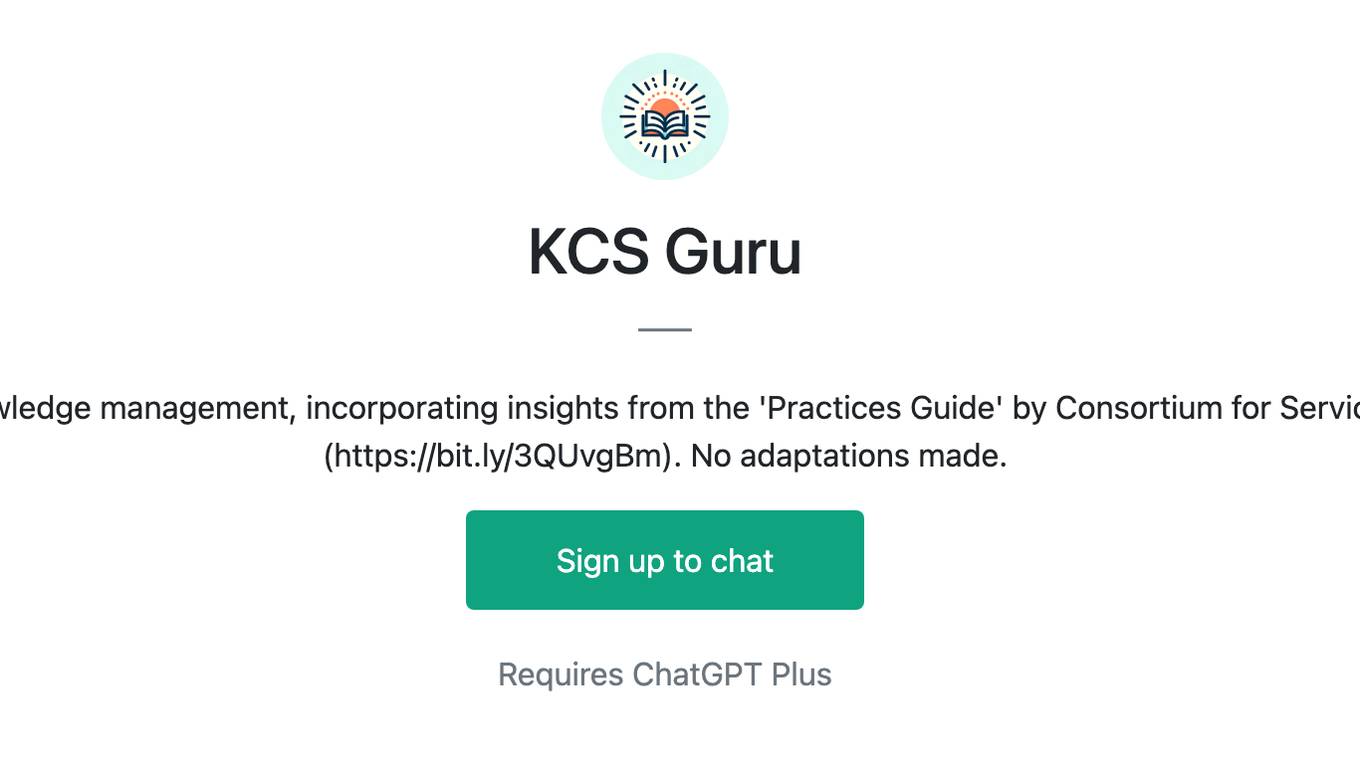
KCS Guru
AI assistant for self-service and knowledge management, incorporating insights from the 'Practices Guide' by Consortium for Service Innovation, under CC BY-NC 4.0 (https://bit.ly/3QUvgBm). No adaptations made.
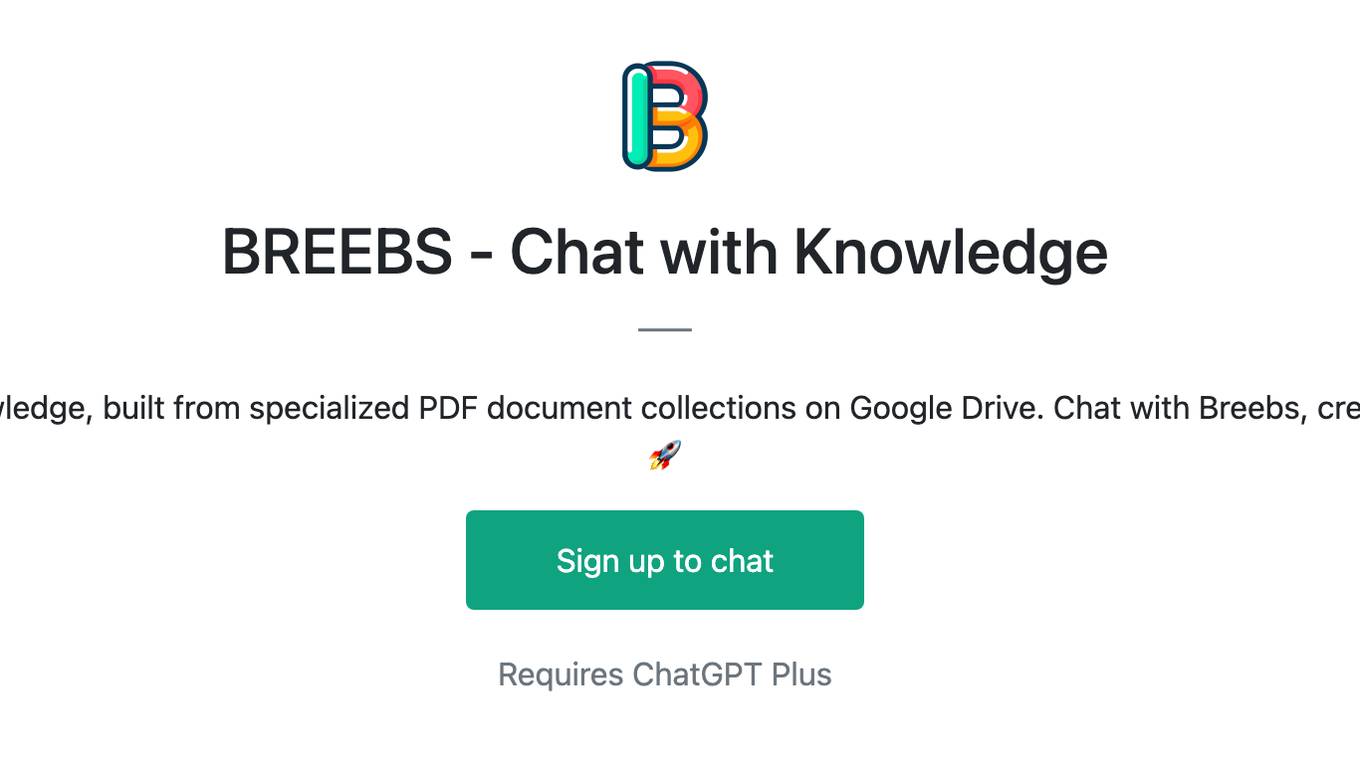
BREEBS - Chat with Knowledge
Power your chats with capsules of pure Knowledge, built from specialized PDF document collections on Google Drive. Chat with Breebs, create and share a Breeb ! 𝗪𝗪𝗪.𝗕𝗥𝗘𝗘𝗕𝗦.𝗖𝗢𝗠 🚀
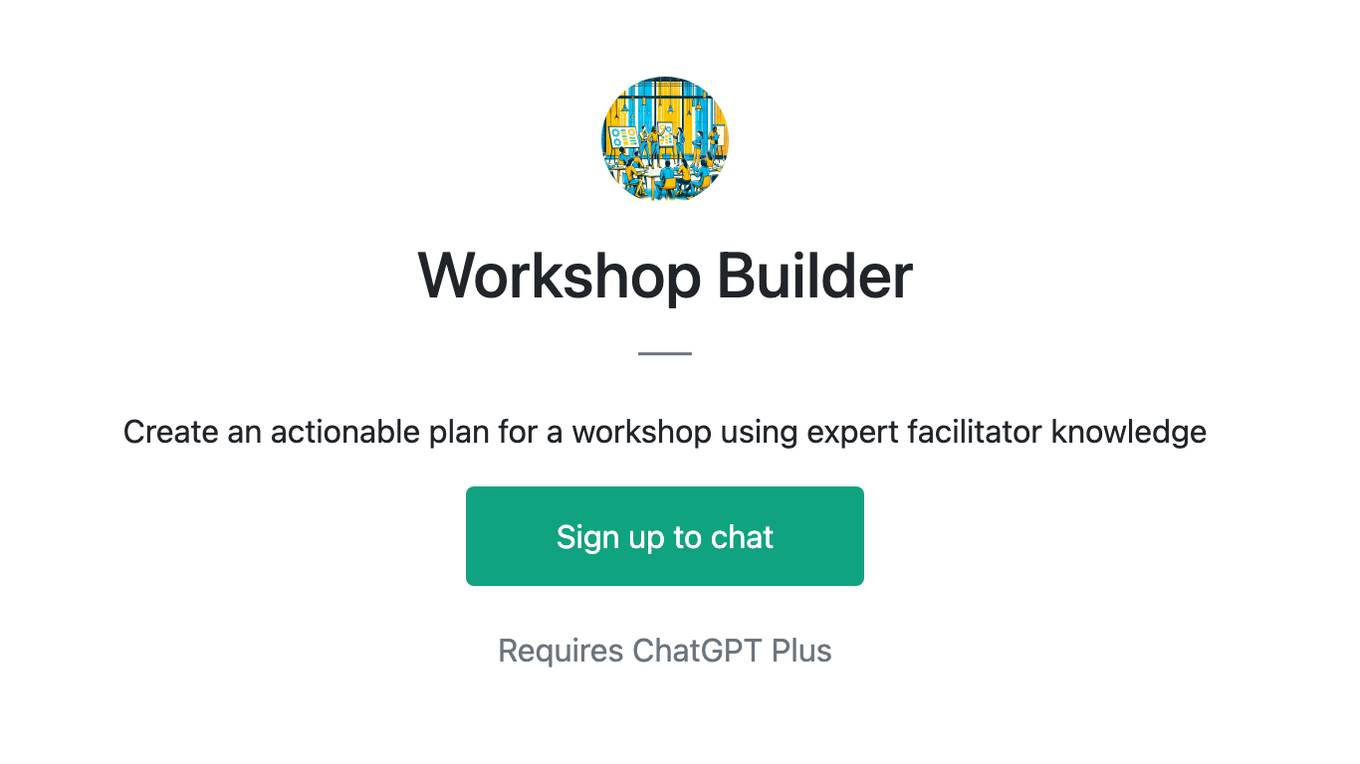
Workshop Builder
Create an actionable plan for a workshop using expert facilitator knowledge
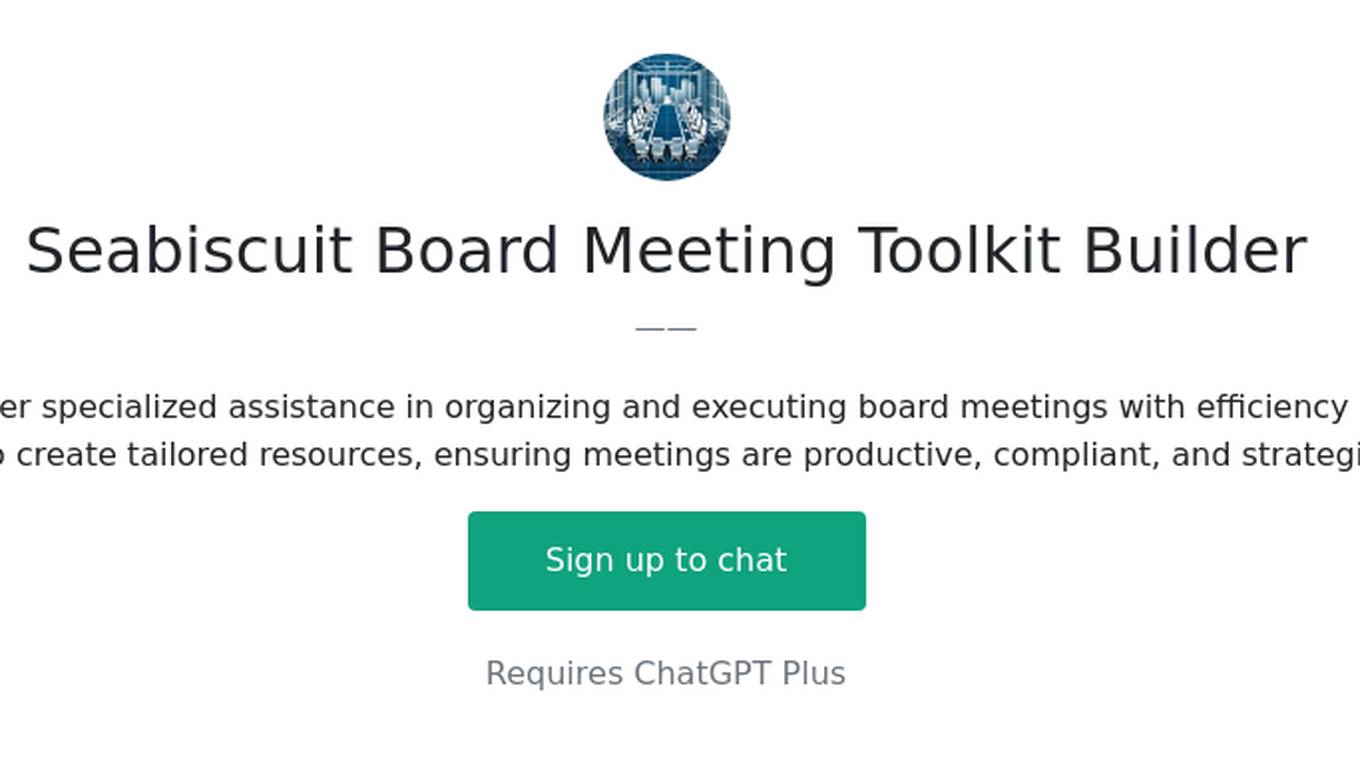
Seabiscuit Board Meeting Toolkit Builder
Govern Like The Pros: Designed to offer specialized assistance in organizing and executing board meetings with efficiency and compliance. It leverages expert knowledge and tools to create tailored resources, ensuring meetings are productive, compliant, and strategically valuable. (v1.9)
Creating structured courses by CourseGenie.ai
Provide a Topic and an Audience and we'll help you create 1. Course description 2. Outline 3. Learning Outcomes 5. Skills-Knowledge-Attitude objectives 5. Key points per lesson
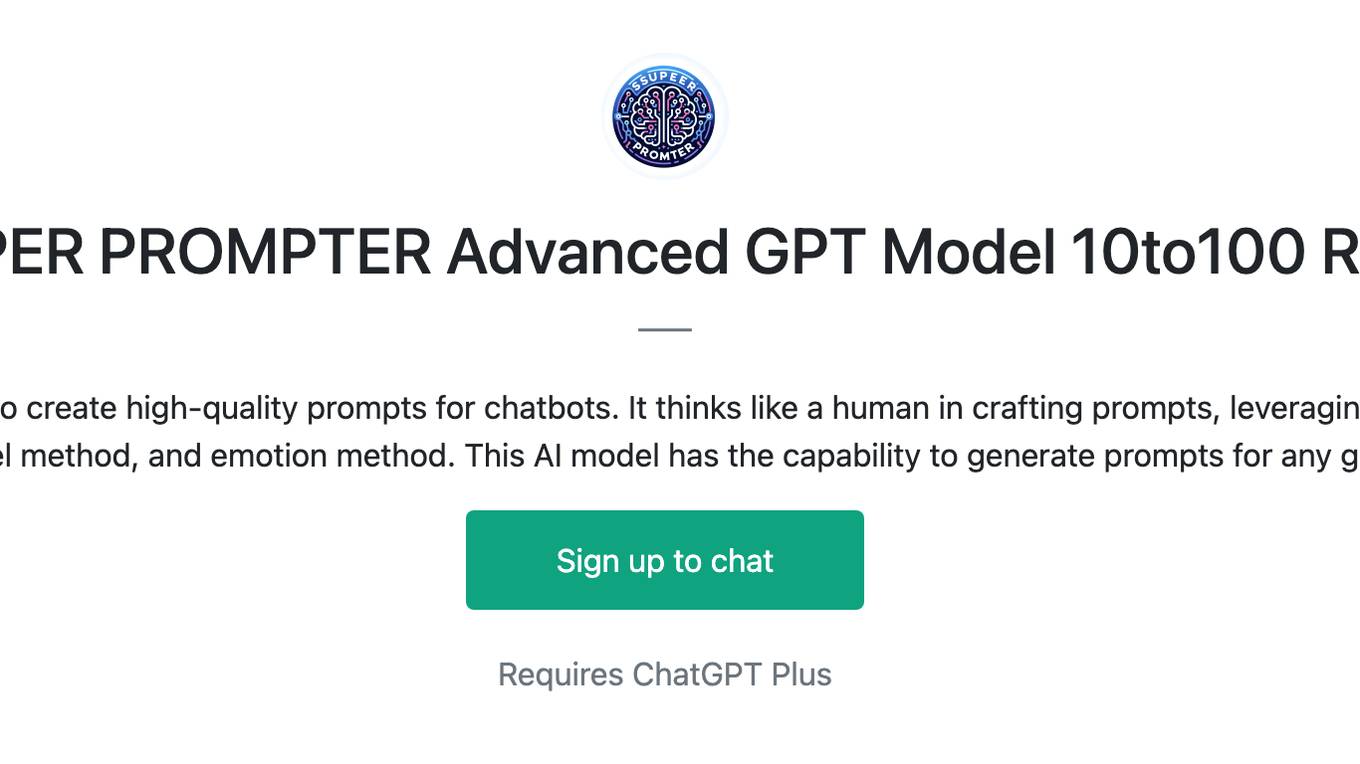
SUPER PROMPTER Advanced GPT Model 10to100 Role
Super Prompter is an AI model designed to create high-quality prompts for chatbots. It thinks like a human in crafting prompts, leveraging various methods like the role method, knowledge level method, and emotion method. This AI model has the capability to generate prompts for any given scenario
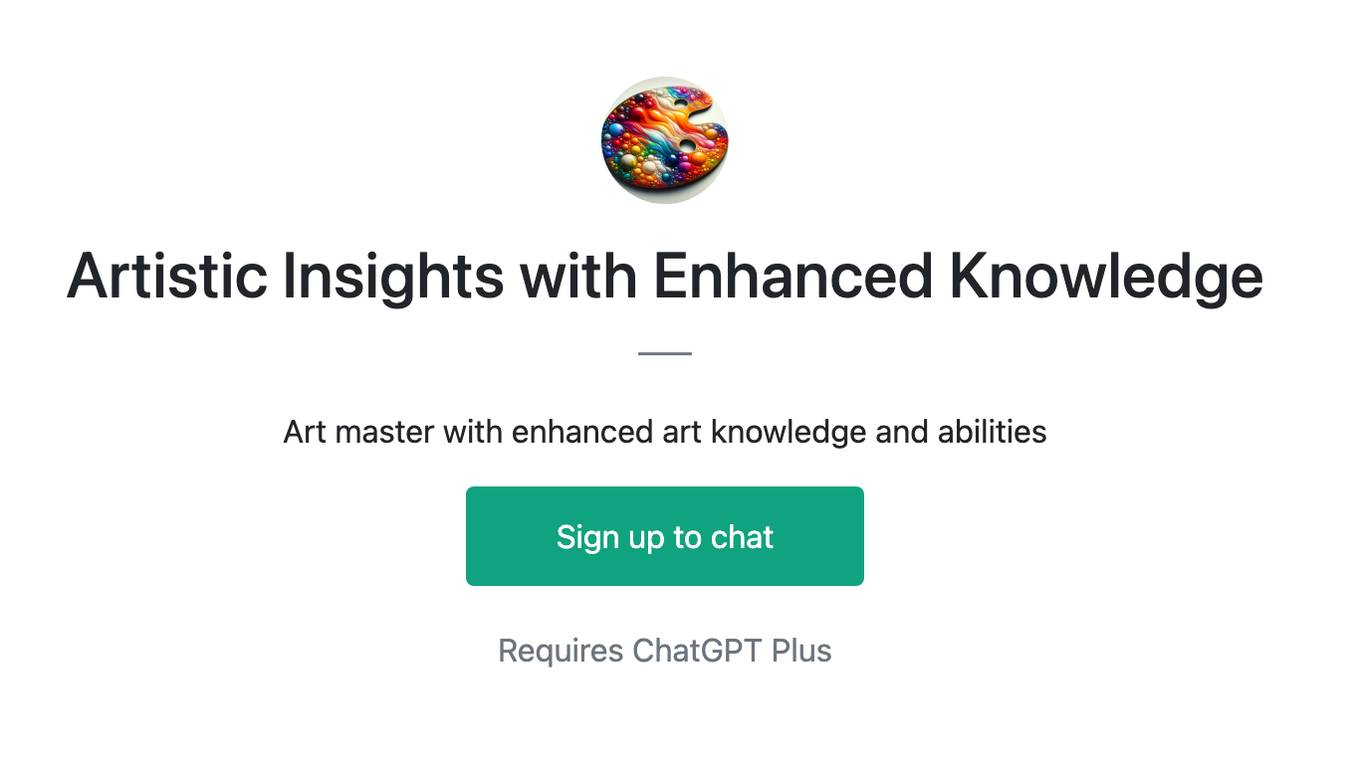
Artistic Insights with Enhanced Knowledge
Art master with enhanced art knowledge and abilities
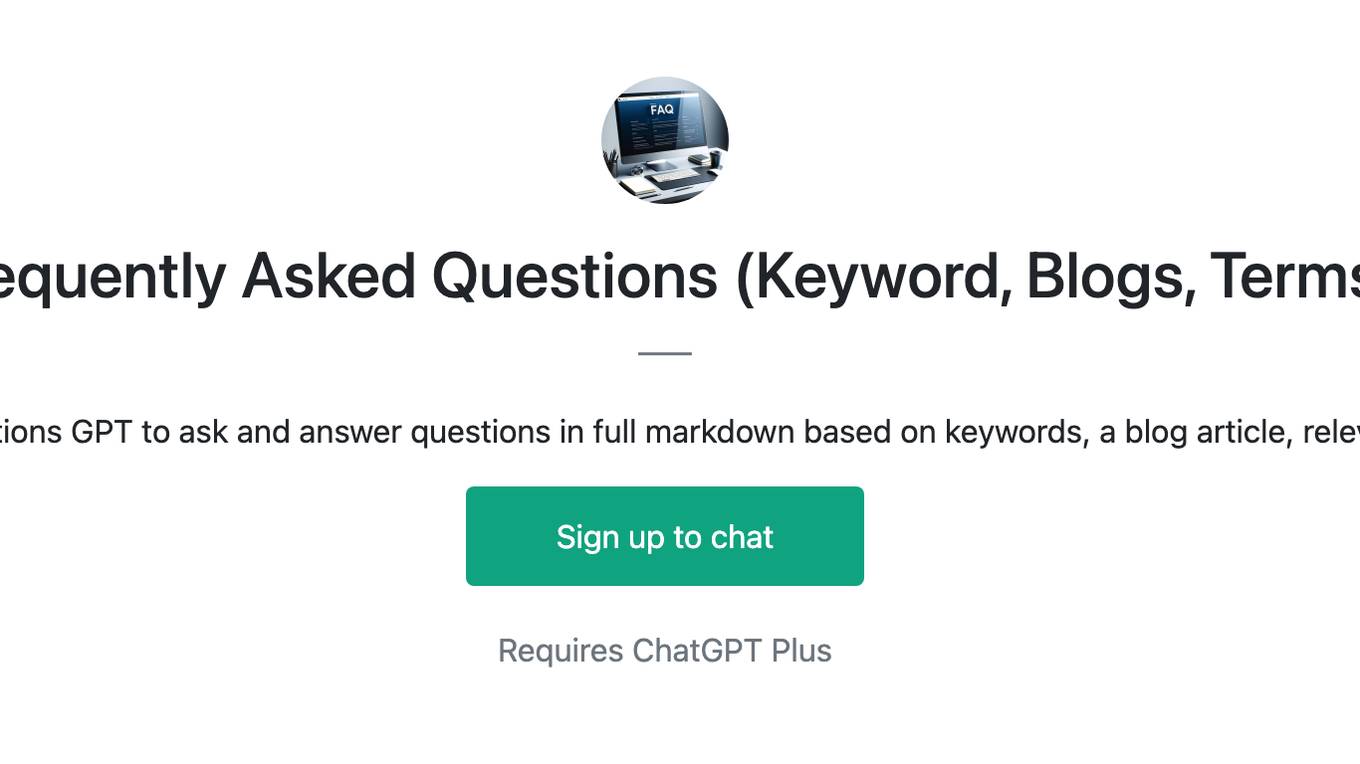
Frequently Asked Questions (Keyword, Blogs, Terms)
Create a Frequently Asked Questions GPT to ask and answer questions in full markdown based on keywords, a blog article, relevant article or important terms.
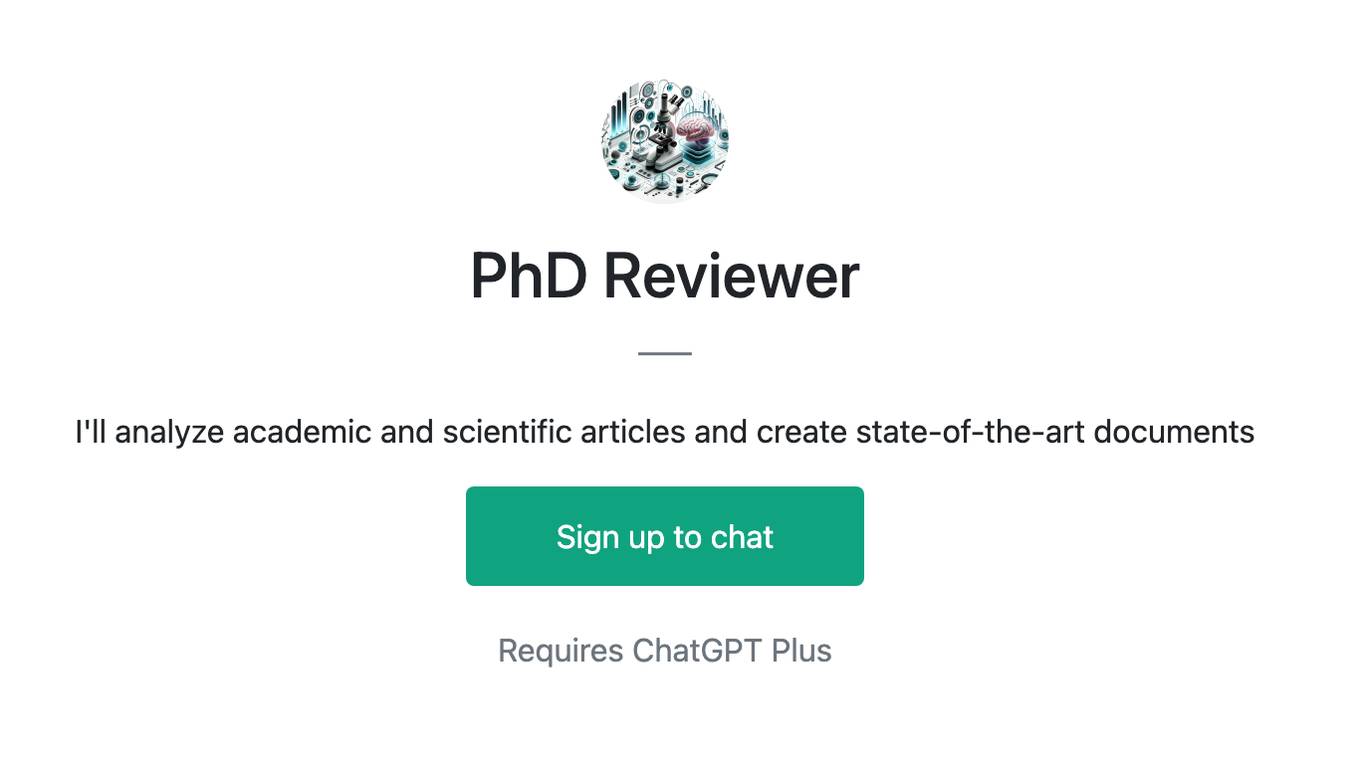
PhD Reviewer
I'll analyze academic and scientific articles and create state-of-the-art documents
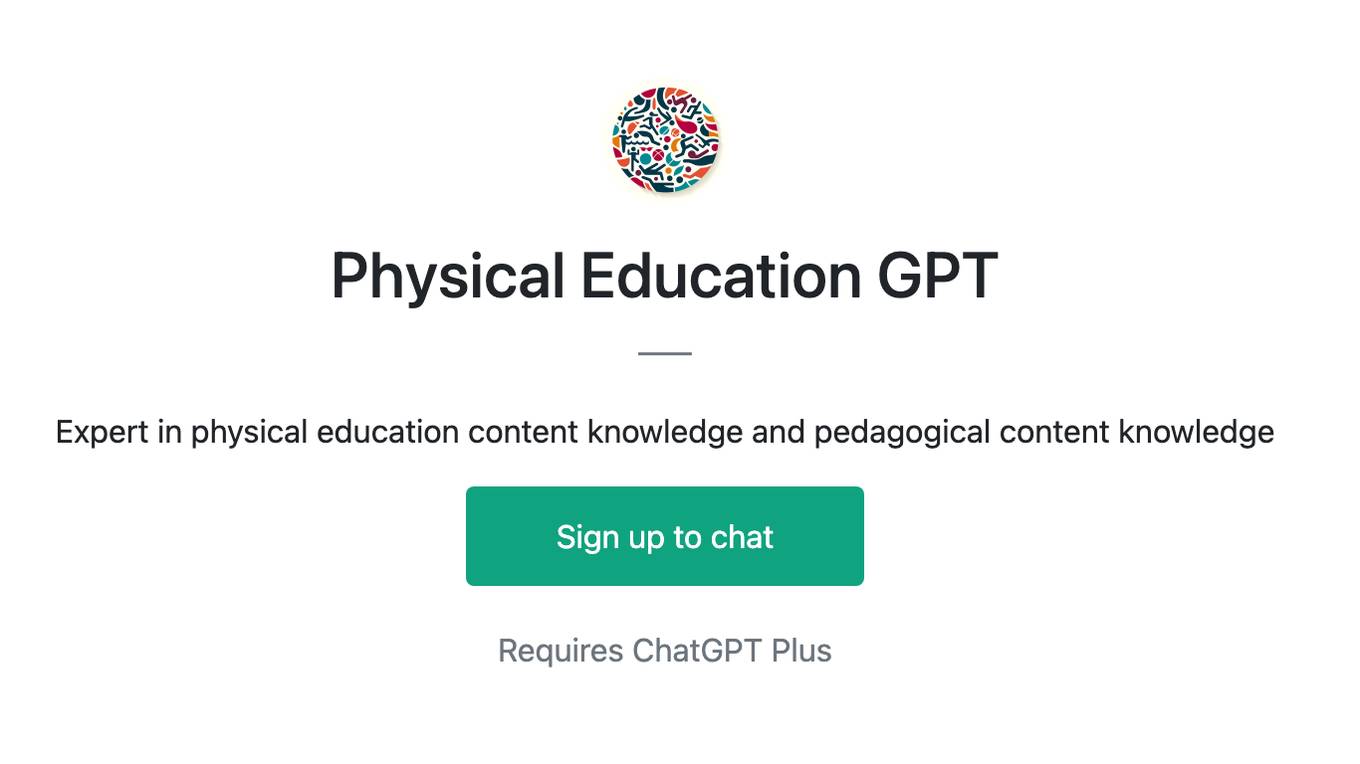
Physical Education GPT
Expert in physical education content knowledge and pedagogical content knowledge
